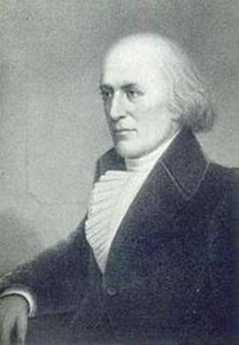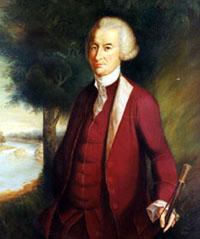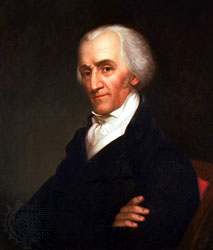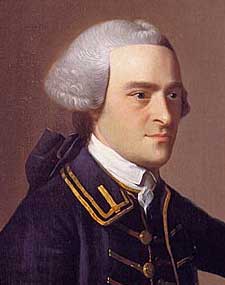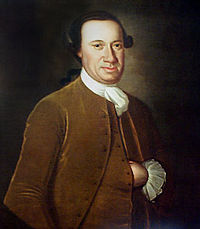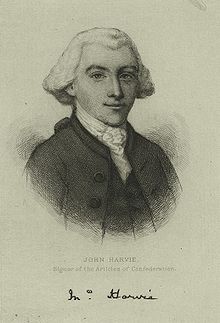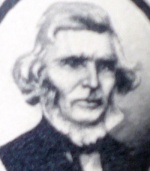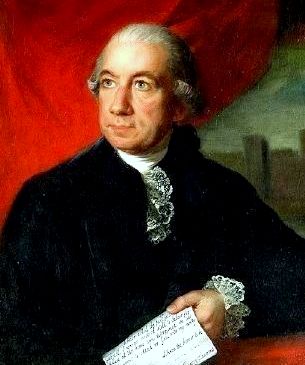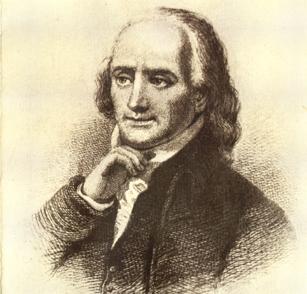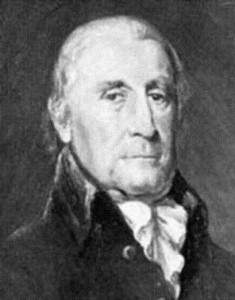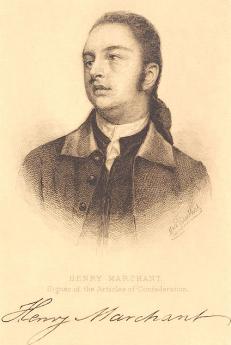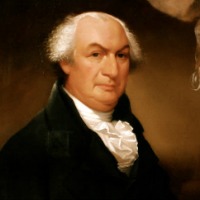5 Volumes
Revolutionary War Era
The shot heard 'round the world.
Constitutional Era
American history between the Revolution and the approach of the Civil War, was dominated by the Constitutional Convention in Philadelphia in 1787. Background rumbling was from the French Revolution. The War of 1812 was merely an embarrassment.
Philadephia: America's Capital, 1774-1800
The Continental Congress met in Philadelphia from 1774 to 1788. Next, the new republic had its capital here from 1790 to 1800. Thoroughly Quaker Philadelphia was in the center of the founding twenty-five years when, and where, the enduring political institutions of America emerged.
Four Constitutions
Multi-national unions of republics are uncommon, usually brief and seldom voluntary. America has had three of them, but we only got it right the second time. Uncertain why we succeeded when many others failed, we remain skeptical of changing the rules. The Europeans, on the other hand, are uncertain whether they want to follow the Confederate States of America toward extinction, or the United States of America toward world domination. When deeply considered, it is a hard choice.
Worldwide Common Currency and Corporate Headquarters
The Death of Money
Articles of Confederation
The Articles of Confederation were written by John Dickinson, modified by others. Officially unratified for five years, the country was ruled under them in Philadelphia, for thirteen. They taught many lessons, which we sometimes forget we had experienced.
WOODSMEN out of sight of town, like sailors out of sight of land, must not depend on anyone else to rescue them. The experience if survived builds self-reliance, but also reinforces disdain for unhelpful authority. By 1776, a million settlers had taken their chances on America and themselves, to escape oppressive governments and religions. Some were criminals escaping justice, some were failures, making a new start. Many colonists would not have survived if everyone had been an extreme individualist, but still there is little doubt most of the colonists wanted no more rules, no more authority, than they absolutely needed. This may have been a caricature, but it was one they believed in. Nevertheless, in 1776 a huge British fleet appeared in New York harbor, under orders from the British Parliament to suppress a revolution with overwhelming force. The American Congress in Philadelphia had only a few weeks to decide whether to resist, or submit. They decided to fight, and hastily ordered up an agreement to do it together. Hanging together, as Franklin put it, in order to avoid hanging separately.
It could be argued the Americans had brought it on themselves by assembling war supplies at Lexington and Concord, by forming a Congress, and sending George Washington at the head of an army to defend Boston. But somehow the Revolutionaries were surprised by the British reaction, just as eight years later they were surprised to have won so many concessions at the Treaty of Paris. It was galling in both cases to see their deeply held assumptions treated as irrelevant to larger world affairs. Regardless of inconsistencies, the colonists held fast to their notions of Liberty. Declarations of Independence or not, they tried to fight a war for six years before they would all ratify the Articles of Confederation, formally uniting them; Independence meant more than mere Independence from Great Britain. And yet somehow it stopped short of it, too. No one insisted that their emotions should be consistent. The result was essentially a tribal treaty, with no executive, no ability to raise taxes, and no way to enforce rules they had made themselves in order to fight the war. Even in the face of countless dangerous difficulties, the colonists even tried for four more post-war years to run a nation with this sort of Constitution, before finally accepting it was useful to have a Constitutional convention consider what might be improved.
REFERENCES
| Annals of Philadelphia and Pennsylvania, in the Olden Time Vol 1: LCCN No.: 2003106586 | Ross and Perry Inc. |
| Annals of Philadelphia and Pennsylvania, in the Olden Time Vol. 2 1-932109-48-X | Ross and Perry Inc. |
| The Conquest of New France: A Chronicle of the Colonial Wars: George M. Wrong ISBN: 1-932109-10-2 | Ross and Perry Inc. |
| The Literary History of Philadelphia: Ellis Paxson Oberholtzer, ISBN: 1-932109-45-5 | Ross and Perry Inc. |
| The Making of Pennsylvania: Sydney George Fisher, ISBN: 1-932109-43-9 | Ross and Perry Inc. |
| The Old Northwest:A Chronicles of the Ohio Valley and Beyond, Frederic Austin Ogg: ISBN: 1-932080-70-8 | Ross and Perry Inc. |
| The Quaker Colonies: Sydney George Fisher, ISBN: 1-932109-09-9 | Ross and Perry Inc. |
A Pennsylvania Farmer in Delaware
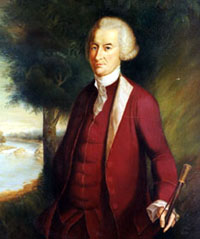
|
| John Dickinson |
It is difficult to have a coherent view of the mind of John Dickinson. Seriously offended by the Townshend Acts, he rightly perceived them to be the work of a few malignant personalities in British high places who would mostly soon be replaced. Later on, he refused to be troubled by the inconsequential Tea Act, which he appraised as a face-saving gesture of reconciliation, but more recent historical information demonstrates was more likely aimed at avoiding an unrelated vote of no-confidence in Parliament. Unfortunately, Dickinson was too remote from these events and additionally could not comprehend reckless hotheads among his own neighbors. Reckless hotheads in turn seldom comprehend the measured meekness of Quakers. In any event, although Dickinson played a major role in the Declaration of Independence, he refused to sign it when the time came, evidently sensing an opportunity to separate the three lower counties from Pennsylvania and its Proprietors. A few months later when the British actually invaded the new State of Delaware on the way to capturing Philadelphia by way of Chesapeake Bay, Dickinson enlisted as a common soldier and fought at the Battle of Brandywine. Obviously, he was seriously conflicted.

|
| John Dickinson's Farmhouse |
Dickinson had become internationally famous for twelve letters he had meant to publish anonymously. The Letters From a Pennsylvania Farmer were written about 1768 out of resistance to the Townshend Acts. Because the three counties which were to become the State of Delaware were then still part of Pennsylvania, many school children have become understandably confused about the actual location of the man who became governor of both states, simultaneously.
The causes of the separation of the two colonies are still a little vague. Delaware schoolchildren are taught the two states separated, but often report they didn't retain much information about why it happened. The Dutch and Swedes who originally settled southern Delaware were not sympathetic with Quaker rule, which could be seen as a reaction to their living here for generations as Dutchmen before William Penn arrived, but then saw the colony sold out from under them. As a further conjecture, there might have been friction with the Quakers over slavery, similar to the hostility of other Dutch settlers in northern New Jersey when William Penn purchased that area. This pro-slavery attitude resurfaced in both areas during the Civil War. One alternative theory which has considerable currency in Delaware is local dissension about Quaker pacifism during the Revolutionary War. On a recent visit to Dickinson's home outside Dover, a school teacher was overheard to instruct his flock that the Dutch Delawarians wanted to fight the British King, but the Quakers wouldn't give them guns. "We value peace above our own safety," was the unsatisfying response they received from the Pennsylvania Assembly. But that line of reasoning bumps up against Dickinson's role in local affairs, his ambiguity over the Declaration, and his vacillation in warfare. One would suppose the simultaneous Governor of both states would play a major role in the separation of the two.

|
| over Air Force Base |
Dickinson's plantation, quite elaborately restored and displayed, is tucked behind the Dover Air Force Base. Perhaps all that aircraft noise will discourage sub-development in the area of Dickinson's plantation and the rural atmosphere may persist for years. At the time of the Cuban missile crisis, your correspondent happened to be driving past, observing the sky filled with bombers, just circling and circling until the diplomats settled matters. Since eight-engine bombers are seldom seen around Dover, it has always been my presumption that they came from elsewhere to be refueled at Dover; but that's just a presumption. One of the pilots later told me he was carrying nuclear "eggs" and was completely prepared to take a long trip to deliver them.
To get back to Dickinson's wavering about the Declaration, maybe there was a good reason to waver. Joseph J. Ellis (in His Excellency, George Washington) relates that after the devastating British defeat at the Battle of Saratoga, Lord North made an offer to settle the war on American terms. In a proposal patterned after the concepts of the separatists in Ireland, America could have its own parliament as long as it maintained trade relationships with England. As an opening offer, that comes pretty close to what the colonists had been demanding. Governor Morris was active in disdaining this offer, although it is unclear whether he was acting alone or as the agent of others. The offer came too late to be accepted, but it might have shortened the war by six years, and we might now have a picture of the Queen on our postage stamps.
REFERENCES
| His Excellency: George Washington: Joseph J. Ellis: ISBN-13: 978-1400032532 | Amazon |
| Letters From A Farmer In Pennsylvania To The Inhabitants Of The British Colonies (1903): John Dickinson: ISBN-13: 978-1163969533 | Amazon |
Addressing The Proprietors' Dilemma
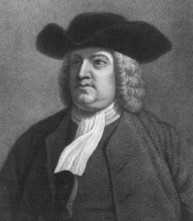
|
| William Penn |
DURING the century which elapsed after Charles II gave away Pennsylvania to William Penn, several hundred thousand people moved in and changed the place. Transformation of the wilderness explains why the terms of the grant seemed logical at one time, but proved almost impossible to manage at the time of the Revolution. The Penns with thirty million acres was the largest landholders in America but, in fact, by 1776 only five million acres had been sold in a century. The land they held was simply too much for one family to handle without an army, and although the original settlers were pacifists, the later ones were combative.
Charles II had written in the Charter that the Penns could have the land if they could maintain order there, retaining the legal right for the King to recover the land if they didn't. This fall-back provision certainly reflects some doubt about the ability of pacifists to shoot the necessary number of Indians, Frenchmen, and Spaniards. On the other hand, the motive for a King delegating away his authority in the first place became clearer when the Penns experienced severe financial strain defending the Northeast corner of the state against the Connecticut invaders. It furthermore helps us understand why Benjamin Franklin received such a cold reception when he was sent to London by the colonists to request the crown to reassert civil authority over the state. That did not necessarily imply stripping the Penns of their land; by this time, it was clear that the Penn Proprietors were mainly interested in selling it to someone. The charter of the King's grant included the offer to make William Penn a King; and although the offer was declined, the Penn Proprietors retained some degree of legal power to govern the territory. Franklin for all his persuasive power was, unfortunately, the one man Thomas Penn didn't want to see, because of the threat he had posed by raising a militia in King George's War, and later his expansiveness at the Albany Conference. And Thomas was a good friend of the King. The King didn't want these problems and particularly didn't want the expense. Ambiguities were, of course, shared all around. William Penn had quite shrewdly seen it was more sensible to treat the Indians decently than to fight with them, and cheaper too; the lesson was not lost on the British crown. But the French Kings posed a much larger world-wide threat to the British colony, finding for their part, it was rather economical to supply munitions to the Indians on the frontier and stir them up emotionally. The French and Indian War was a small component of the Seven Years War, which proved to be a costly adventure for both sides. Its local cost certainly overwhelmed the ability of one family to underwrite local governance in a large wartime colony, and it jeopardized the finances of the British Monarch to carry the rest. The resulting need to tax the colonies for their defense sent things downhill, eventually to the Stamp Act, the Townshend duties, and the Tea Tax. Everyone made lots of mistakes as the whole structure underwent revision, just as pacifists are certain will happen in any war. But when a pacifist utopian colony was prospering while successfully dealing with the Indians, it's all sort of a big pity.
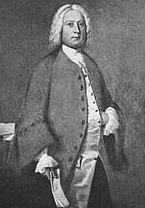
|
| Thomas Penn |
With much to lose, the Penn family did pretty well with the resources at hand. By the time of the Revolution, three generations of Penns had divided up ownership shares of the Proprietorship. When French and Spanish ships were marauding the Delaware River, Benjamin Franklin the local printer took it on himself to organize a militia which persists today as the Pennsylvania National Guard, the Twenty-eighth Division. Franklin was suddenly a local hero to everyone, except to one man, Thomas Penn. Thomas was the dominant figure in the Penn family for many years and worried deeply about Franklin, a man who could stir up ten thousand armed volunteers with a poster proclamation. Such a man could mean trouble, as indeed events later proved to be the case.
John Penn was the Governor of the state, residing in his mansion on the Schuylkill called Lansdowne, doing his best to ingratiate the locals. He struggled to be diplomatic when arguing for the decisions actually made by his Uncle Thomas in London. Thomas Penn, on the other hand, was an important friend of the British Ministry, and a notable person in aristocratic England. As the Revolutionary War approached, the problem transformed into how to hold on to 25 million unsold acres, while remaining unsure who was going to win the impending war.
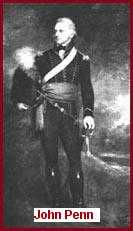
|
| John Penn |
The strategy the Penns adopted was to get out of the business of running a local government, as Franklin had proposed but in a different way. John Penn the Governor became a private citizen, just a local real estate agent. He took an oath of allegiance to the Revolutionary government, which in the chaos of the time was equivalent to becoming an American citizen. Meanwhile, other members of the family remained in England, ready to revise the arrangement if the British won the war. It was all fairly transparent straddling of the issues, which was only even remotely likely to be effective because of the enormous store of Penn goodwill built up over a century. In 1789 revolutionary France, for example, such sentimentality would not have delayed the tumbrels to the guillotine for five minutes.
Meanwhile, an unexpected difficulty was created. By withdrawing from control of the local government, the Penn family also withdrew from the defense of state borders against neighboring colonies. Under the circumstances, the Penns were afraid to appeal to the King, while the new government of Pennsylvania found the Articles of Confederation were merely a wartime tribal compact. The Articles stabilized boundaries mainly for the purpose of conducting a united war, and did not seriously contemplate a continuing judicial role for disputes between colonies. When the Revolution was finally over, the Penn Proprietors were not left with much of a bargaining position. The new State of Pennsylvania offered, and they accepted, about fifteen cents an acre to surrender their claims. In Delaware, they got essentially nothing for those three counties. Only in New Jersey did the Proprietors' claims remain durable after the new nation was established. The Proprietorship of East Jersey survived into the late 20th century, and the Proprietorship of West Jersey continues to return a small profit even today. The New Jersey curiosity is treated in a separate essay.
Two Friends Create the Articles of Confederation
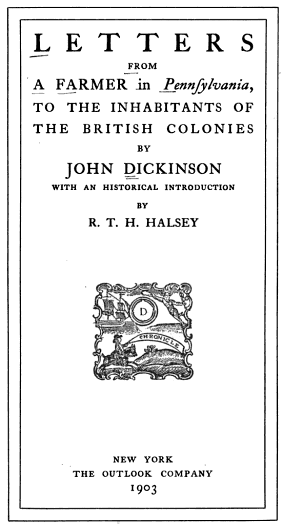
|
JOHN Dickinson had been highly critical of England's treatment of its colonies. As early as 1768 he had written a book called Letters of a Pennsylvania Farmer which is credited with strongly influencing the colonies in the direction of resistance to the British Ministry. When it came time to write the Articles of Confederation, Dickinson was the lawyer selected for the task. His good friend Robert Morris had been less outspoken in opposition to the Ministry's behavior, quite possibly because he was adept at finding workarounds for his own personal business problems. But possibly he was merely maintaining an ambiguous negotiating posture, since in a hotly contested election with this as the main issue, Morris was elected by both sides in the argument. When July 4, 1776, forced the issue both Dickinson and Morris had refused to sign the Declaration, but within a few months both of them were actively fighting for the Rebellion. The truest test of their evolving attitudes might have emerged when Lord North sent the Earl of Carlisle as an emissary after Burgoyne's defeat at Saratoga, offering peace with a sort of commonwealth status for the colonies. Not much is written about this curious episode, leaving it unclear whether the British were serious, and even if they were, whether the Americans understood the offer as serious. On the surface, the British offer conceded taxation with representation as the rebellion had been demanding. But it was rejected by Gouverneur Morris acting for -- who remains unclear. It seems possible the British were exploring the true feelings of people like Dickinson and Robert Morris but were disappointed. The earlier treatment of Ireland after it had agreed to a similar half-hearted autonomy did leave British sincerity in legitimate doubt.
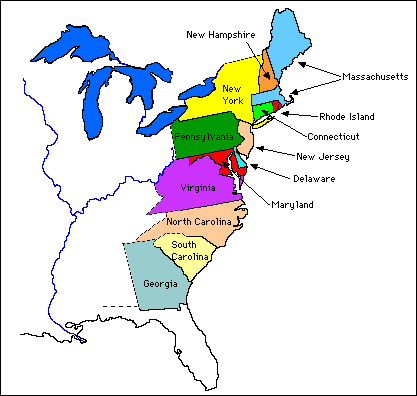
|
| Thirteen |
The thirteen colonies had united to fight the British King, but many of them were reluctant to unite for any other time or purpose. Rhode Island was perhaps the extreme example of this view of what Independence was supposed to mean, but the feeling existed to some degree in many colonies. Concern for the power of this feeling of tentativeness may have contributed an important reason the Articles placed heavy emphasis on declaring the document to represent a perpetual arrangement. Recognition of the weakness of this intent may have been an important reason why George Washington was later willing to sweep the issue aside, even though he of all people was most concerned to avoid the appearance of acting as an arbitrary king. For these and other reasons mainly revolving around state boundary disputes, the Articles remained unratified for years. Finally, in 1781 Robert Morris became convinced that failure to ratify was encouraging the states not to cooperate, and successfully pushed ratification through its steps. At that time, Morris was effectively running the country, even providing his own credit and funds to do it. People were reluctant to oppose his wishes, but they were also unwilling to provide the taxes, supplies, and troops that Morris imagined were being blocked by failure to ratify. Ratification of the Articles accomplished very little except to convince Morris: the Articles were flawed and must be replaced with something conferring more central power.
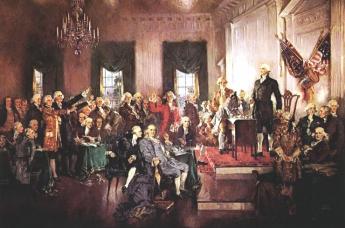
|
| The Goal: 1787 |
Little is known about the evolution of Constitutional thought in Morris' mind between 1781 and the Constitutional Convention in 1787, although a great deal is known about his other numerous activities. It is clear, however, that his experience with the recalcitrant Pennsylvania Legislature had been dismal, while he came to see the one insurmountable flaw in the current Federal government was its inability to levy taxes and consequently, to service national debt. The states were able to levy taxes under the Articles but erratic in doing so, resorting to paper money inflation at the first sign of tax resistance. In Morris' view, the key to the effective government was to reverse the situation; let the national government tax, let the states spend. The key to such rearrangement would be to permit the national government to spend on a very limited list of vital purposes, but bedazzle the states with a substantially unlimited shopping list if they thought they could afford it. As the accounts to pay for the Revolutionary War totaled up, it was apparent that the National Government had twice as much debt as the states. Therefore it would at most, need twice the state taxing power to service such a debt; presumably, wars would be infrequent and it would be less than that. Pay this one off, and potentially the need for future federal spending would be small. Indeed, under the presidency of James Monroe, the national debt was completely paid off, although briefly. It was almost as if Robert Morris and his pupil Alexander Hamilton had a crystal ball.
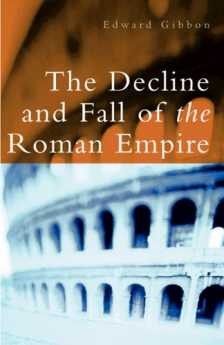
|
| Decline and Fall, Anyone? |
Robert Morris was brilliant and had six years to fashion his strategy, but he also had some help. For one thing, George Washington lived next door much of that time. By then, almost no one dared confront Washington. Adam Smith had written his book The Wealth of Nations in 1776, and Morris gave this extraordinary work as presents to his friends. Morris had corresponded with Necker, the genius financier of France, and through his good friend Benjamin Franklin, gathered insights from the rather advanced British national finance. And James Madison brought in scholarship about politics and statecraft accumulated by Witherspoon, Hume and the Scottish enlightenment. The year 1776 was a remarkable moment for new ideas. In that year, Edward Gibbon also published the first volume of The History of the Decline and Fall of the Roman Empire. The warning behind that important book had an important impact on the minds of important thinkers of the era, too.
Once you grasped all the central ideas, in this environment the resulting strategy almost worked itself out.
Attendees of the Confederation Congress (1781 - 1789)
|
|
|
||||||
|
|
|
||||||
|
|
|||||||
|
|
|
||||||
|
<
|
|
||||||
|
|
|||||||
|
|
|||||||
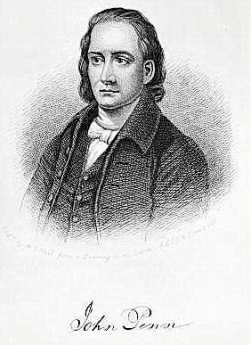
|
||||||||
| John Penn |
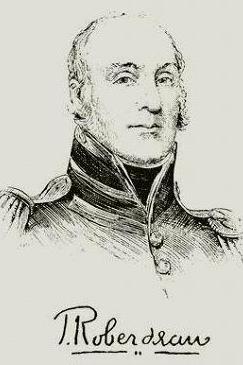
|
| Daniel Roberdeau |
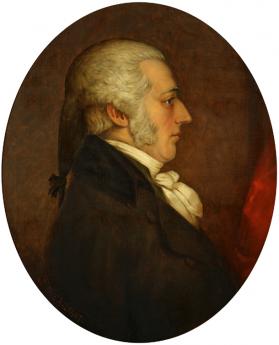
|
| Nicholas Van Dyke |
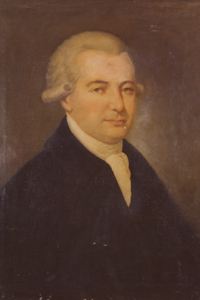
|
| George Walton |
Boundary Disputes
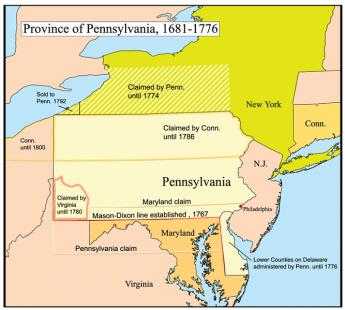
|
| Four Corners of Pennsylvania |
When you talk boundaries, a good lawyer is what you need. Pennsylvania had the best in William Penn. Prior to 1776, the boundaries between the American colonies were settled in London, either by the King or the British courts. After 1787, disputes over boundaries were settled in the United States Federal Courts, acting under Section III of the Constitution. Generally speaking, boundaries were first created by treaties, by Kings, and by Congress. Boundary disputes were then settled in the courts, first in England, and later in Federal Courts. Between 1776 and 1787, however, the Articles of Confederation governed. The immediate problem was that the Articles were not finally ratified until 1781. A technical problem was that surveying instruments were improving during this period. The judicial problem was that a body of law was evolving about when to use the deepest channel of a river or when to use the half-way point between the two banks of a river, and when to use just one bank of the river or the other. And the political problem was that major immigration made everyone less care-free about boundaries of the land which were steadily growing more valuable. The American period under the Articles of Confederation was one big argument about state borders.
A century earlier, when British kings were handing out charters to those adventurous enough to accept them, there was plenty of cheap lands if someone could defend it. The common approach to granting charters was to pick two points along the Atlantic, and from there to extend lines westward as far as they could go. When the lines bumped into lines given to other colonies, there were countless lawsuits and occasionally little wars. Only the three Quaker colonies of New Jersey, Pennsylvania and Delaware were formed late enough in the colonial period to enjoy practical ways even to define a western border. Virginia, the largest colony, officially extended itself to include what is now Kentucky and West Virginia, and had reasonably defensible claims to all the land of the Northwest Territory, on the western side of the defined Pennsylvania western border, all the way north to the Great Lakes. When the Indians finally woke up to what was happening, they rebelled under the leadership of Pontiac and Tecumseh and were helped in their massacres of white settlers by the French, later by the British. Peaceful rectangular Pennsylvania experienced armed nibbles at each of its four corners; from Maryland in the southeast, Virginia in the southwest, Connecticut in the northeast. On its northwestern corner, Pennsylvania had the award of the Erie connection to the Great Lakes to settle an overlapping conflict between Connecticut and New York. The Articles of Confederation, composed mostly with common defense against England in mind, were deliberately inadequate to govern disputes between allies within the revolters. Discovering remarkable subsidence of such disputes after the installation of the Constitution, this might well have become a major reason for replacing the Articles of Confederation if it had been foreseen. But that was scarcely the case. The American colonists simply had no idea the Union would make such disputes immediately seem trivial if still remaining fairly numerous. When the advantages of peaceful unification are considered by other nations on other continents, consideration really should highlight the sense of delight America felt at the discovery of this unexpected bounty. At a minimum, it helped us ignore the many fumbles we also experienced.
The Origin of States Rights, a Rumination
ALMOST alone among the British colonies in America, Pennsylvania's western border was specified in the King's charter of the colony. It was "five degrees longitude west of the point where the eastern boundary crosses the Delaware" [River]; however, its actual location on the ground was not actually marked until 1784. It's a few miles west of the present city of Pittsburgh, located at the forks of the Ohio River, where the Allegheny and Monongahela Rivers join. However, until 1784 it was not a certainty that this complex was within Pennsylvania instead of Virginia. The origin of Ohio is at the only major water gap in the North-South mountains, and the tributary rivers are fairly large. The three merging rivers thus form a nearly continuous water route along the base of the mountain range, from the Great Lakes south to Pittsburgh, or from the Chesapeake Bay north to Pittsburgh, and then to the Mississippi, going past the best topsoil farming land in the world. The forks of Ohio were the great prize of the Seventeenth and Eighteenth centuries, the place where young George Washington himself started the French and Indian War. To include these treasures, it seems vaguely possible that William Penn insisted on having the border of his state safely include the water gap at the beginning of Ohio. Perhaps not, of course, perhaps it was just a sense of tidiness on the part of the ministers of Charles II. The original document stated that the border was a hundred miles east of there, to match where Maryland ended. When the document was returned to Penn by the King's ministers, however, it had the new language.
The existence of this north-south termination of Pennsylvania began to take on a new significance when other states made claims for their land grant to extend to the Pacific Ocean, and the extensions collided with each other. Virginia then developed its territory to include modern Kentucky and West Virginia. That resulted in Virginia's land aspirations veering northward, to include the Ohio Territory west of Pennsylvania's fixed boundary. By the legal standards of the day, Virginia had a fairly good claim to all of the Indian territories, not merely to the west of Pennsylvania, but extending at least to the Great Lakes, perhaps farther. Maryland, Connecticut, New York, and Massachusetts had conflicting claims from an infinite extension of their western boundaries. As a consequence, it was impossible to achieve ratification of the Articles of Confederation for five years. The various states involved were fearful of the creation of a combined political entity might result in a court which would be enabled to rule against their individual aspirations. The stakes were high; the land mass involved would be several times as large as England.
The person who finally broke this deadlock might well have been Robert Morris, who was disturbed that this inter-state dissension was injuring his ability to borrow foreign funds for the Revolutionary War. The internal negotiations took place under wartime conditions, and are poorly researched. No doubt some person deserves credit for bringing this wrangle to a close. Virginia had the strongest claim, New York the weakest. New York gave up its claim first, Maryland was the last, and Virginia the most disappointed. Pennsylvania, unable to make a claim, took the position that the land belonged to everyone, and eventually was mollified by getting a small notch of land extending to the Great Lakes at Erie. It must be noticed in passing that final resolution of the land claims came at the Treaty of Paris ending the Revolution. Benjamin Franklin, soon to become President of Pennsylvania, was the negotiator of the treaty which reflected Pennsylvania's position that the land belonged to all of us, right?
Even without these western land claims, Virginia was the largest and richest of the colonies, and rather easily adopted the attitude that Virginia would be the leader of the new United States. From their viewpoint, the preservation of states rights would enhance Virginia's leading the country. More or less immediately, the attitude of small states like Delaware hardened into resistance that this must not happen. Much otherwise inexplicable behavior also begins to make a sort of sense: the perverse behavior of the Lee family in the Continental Congress, the quarrels within George Washington's cabinet, the relocation of the capital and the dreams of the Potomac as the nation's main portal of transportation, the rise of Jefferson's political party, the obstructionist behavior of Patrick Henry, the Virginia domination of the Presidency for decades, and countless less famous episodes of history -- make more sense as residuals of Virginia's early land aspirations, than as defenses of slavery or philosophical convictions that states were somehow superior to nations. These suspicions are difficult to clarify and impossible to prove. The best way to see some substance to them is to imagine yourself in the Virginia House of Burgesses, politically connected and vigorous, able to imagine your descendants all inheriting a county or two of rich land as a remote consequence of a few glamorous deeds by their Cavalier ancestor.
Harvard Men Suggest a Cold Place for Yale
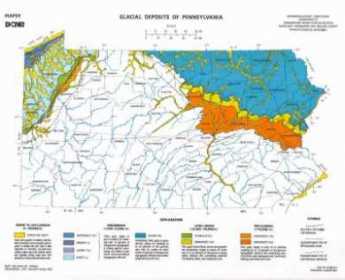
THE Colonial disputes with Great Britain were settled in 1783, creating great opportunities for the Colonies to resume their disputes with each other. Because of the unfortunate earlier action of the Penn Proprietors in selling land already occupied by Connecticut settlers, the legislatures of Connecticut and Pennsylvania behaved in ways that do them no credit. The situation could easily have led to more armed conflict, and it could even have gone from local war to fragmentation of the nation. So, although New York was close enough to know better, they joined with Massachusetts in offering to consider carving a new state out of Pennsylvania's northeast corner. The proposal was rejected, but the geological idea remains.
The northeast corner was once covered by glacier, and the region remains separated from the rest of Pennsylvania by a "terminal moraine", which is the huge pile of rocks and stones left behind after a glacier recedes. There are thirteen counties of rather desolate woods in this corner, with five or six more counties of moraine. Even today, some upper counties have only five or six thousand residents scattered in little settlements. The whole idea of creating a new state died when people got a chance to walk around and actually look at the region. Although one county is named Wyoming, this was not Wyoming, Fair Wyoming, at all; this was a pile of rocks. Moraines were what the Connecticut settlers were trying to escape.
However, their grandchildren might be unsure. Tremendous deposits of anthracite were soon discovered in the region, and then oil in Bradford County. Present residents of New York City will apparently commute endlessly to escape taxes, so an interstate highway or two would probably quickly make the area into Little Brooklyn.
The central point in all this was beginning to emerge. Since the Constitution was ratified, it simply no longer matters what state you were living in, as long as you can trust the legislature and the courts to be reasonably fair. These two combative legislatures and affiliated courts were once quite obviously behaving in a manner too obscenely partisan to be tolerated. Everybody involved in this mess could see the advantage offered by the ability to appeal to a superior power dominated by the other eleven (now, forty-nine) states. Carving out a separate state was not a compromise, at all. It was a threat, just as unsatisfactory to one combatant as the other.
Although it was clearly time to put aside the grievances and vengeances of a land dispute which had got out of hand, currents of other wild and headstrong ideas continued to swirl into the northeastern corner of Pennsylvania. In April 1786 Ethan Allen himself showed up in this region, wearing full Regimental uniform. He declared he had formed one new state and that with one hundred of his Green Mountain Boys and two hundred riflemen, he could establish another one. There is some reason to suppose Allen was responding to an action of the Susquehanna Company of Connecticut, which had held a meeting the previous September where Oliver Wolcott drafted a constitution for a new state named Westmoreland. William Judd was to be governor, John Franklin lieutenant governor and Ethan Allen was to be in command of the militia. The Assemblies of both Connecticut and Pennsylvania immediately reacted with outrage to renounce the whole State of Westmoreland idea; when John Franklin persisted, he was dragged to Philadelphia and thrown into jail to calm his rebellious spirit. Nevertheless, the point was dramatized that -- even five years after the Decision of Trenton had supposedly settled the matter, and after all sensible neighbors urgently wanted this dispute terminated -- something else needed to be done to strengthen the Articles of Confederation, or preferably replace them entirely.
Litchfield County, Extended (1771-1775)

|
| Wilkes-Barre |
FOR four years, the Connecticut settlers considered the apparently peaceful Wyoming Valley of Pennsylvania to be part of Litchfield County, Connecticut, and its main little town was called Westmoreland (now Wilkes-Barre, although it still has a Westmoreland Club). However, the high-living, non-Quaker sons of William Penn were ill content to let matters remain that way. Their response was to sell large tracts of land in the area, on condition the purchasers would do whatever fighting was needed to conquer and hold it. The main purchasers were Scotch-Irish from Lancaster County, and the main speculators were prominent Philadelphians with names like Francis, Tilghman, Shippen, Allen, Morris, and Biddle. This speculative land sale was to be the source of trouble for decades because it conflicted with titles to the same land issued by the Susquehanna Company.
The predictable trouble surfaced in 1775, with the Second Pennamite War. Under the command of a man named >Plunkett, 700 Pennsylvania soldiers marched to liberate Wyoming and were soundly defeated by the Connecticut soldiery under the command of Zebulon Butler. There might have been further fighting in this expanded war, except for the other eleven colonies applying great pressure on these two colonies fighting each other with potential jeopardy to the united rebellion against British rule. While the Penn family were definitely royalist in their sympathies, their colonial property put them in an awkward position with their Scotch-Irish allies, who were, in all colonies, the main leaders in the revolution. The effect was to isolate the Connecticut invaders, even though they were the victors in the fighting.
The Decision of Trenton (1782) Under the Articles of Confederation

|
| Trenton Makes the World Takes |
AS the American Revolution drew to an end, the time arrived to settle the inter-state grievance of Pennsylvania and Connecticut over King Charles II's ambiguity about who owned Pennsylvania's Wyoming Valley, including the city of Wilkes-Barre. However, if they were all going to be United States citizens, it didn't matter much whether the residents of Wilkes-Barre (as it was now known) were governed by the laws of Connecticut or Pennsylvania. But bloody grievances die hard, and slowly. The genteel debates envisioned by the Articles of Confederation were not equal to settling blood feuds, but they tried. The two states selected judges to represent them, in a negotiated settlement which took place on neutral ground, Trenton, New Jersey. After protracted testimony and prolonged secret deliberation, the judges emerged with a very brief and unexplained decision: The Wyoming Valley belongs to Pennsylvania. Period.
Almost every scholar of this subject is convinced that the unwritten decision contained two other provisions. Connecticut was given a piece of Ohio, Western Reserve. And the Pennsylvania representatives privately assured the group that the Pennsylvania Legislature would in time recognize the land titles of the Connecticut settlers who were actually resident on Pennsylvania land. Unfortunately, it is hard if not impossible to enforce an agreement that is secret, and the Connecticut claim to Ohio was eventually eliminated, while the Pennsylvania promise to recognize the land titles of people whose ancestors killed our ancestors, was much delayed, watered down, and resented.
Northwest Ordinance of July 13, 1787: Articles of Confederation at their Best
COMING across the term "Northwest Territory" for the first time, modern students can easily confuse it with the states of Washington and Oregon, more precisely called the Pacific Northwest, thousands of miles to the west. The United States acquired this more eastern Territory from the British -- bounded on the south by the Ohio and Mississippi Rivers below Canada, and West of the Appalachian Mountains -- at the second Treaty of Paris which ended the Revolutionary War in 1783. Before that, the British had acquired it from the French at the first Treaty of Paris, ending the French and Indian War in 1763. Until the Louisiana Purchase in 1803, this land really was the Northwestern tip of American possession, even though it is less than half-way between the Atlantic and Pacific Oceans. It was occupied by Indian tribes who much preferred dealing with wandering British fur traders, to the new threat of permanent occupation by American settler families. In part, bloody warfare with the Shawnee Indians under Tecumseh did somewhat justify the reluctance of the British to give up their chain of forts in Indian Territory friendly to them, but rapid immigration to America from Europe after the end of the war soon generated great westward pressure for settlers to move there. In general, these new immigrants were neither military veterans nor experienced woodsmen and suffered several large massacres from Indians whose homelands were threatened. The Northwest Territory was a dangerous place for unseasoned settlers at the end of the Eighteenth century.
Consequently, it required four years for the new Republic to decide how to handle this sudden expansion of territory it must govern. The question of excluding slavery had already come up, along with the puzzle of managing the masses of raw European immigrants as they encountered and outraged the native Indians. Furthermore, a military alliance, which is what the Articles of Confederation amounted to, is an awkward vehicle for governing an expanding frontier wilderness, especially while it was experimenting with new forms of governance. For one thing, joint ownership by thirteen sovereignties seemed almost certain to tempt one or two of them to take it all over, provoking interstate war and possibly endless disputes between former friends. Most observers in retrospect regard the Northwest Ordinance of the Confederation Congress to be a sensible and workable product, which happened to be just about the last major act of that political body. The Constitutional Convention overlapped it.
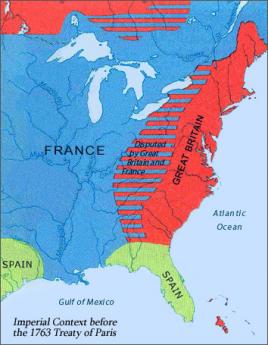
|
| Before the French and Indian War. |
The Ordinance under the Articles of Confederation was ratified on July 13, 1787, whereas the Constitutional Convention was in session from May 14 to September 17, 1787. No doubt a smooth transition between the two was under discussion, although the Confederation Congress was an itinerant body, always struggling to produce a quorum and a place to meet. Judging from their behavior after the Constitution was ratified, some undefined proportion of the Confederation Congress may have continued to harbor States Rights resentments at being displaced by a new nationalist government. At the very least, it would only be natural for some of the Congress to be offended that Washington failed to endorse them for the Constitutional Convention. Following that, the advocates of Constitutional ratification were then fairly careless in denouncing the inadequacy of the Articles by citing the failures of the Confederation Congress as examples of it.
The Northwest Ordinance provided for a military government until a civilian one could establish itself. Conquering armies are quite accustomed to the rough uncertainties of keeping a hostile territory subdued while a declared enemy is relentlessly dealt with under a different set of rules. The Congress (soon amended to substitute the President) was to appoint temporary governors and panels of judges. A provisional civilian government was added as soon as five thousand male settlers (each owning fifty acres of land) were resident, and that provisional government was to help devise a state constitution and set of laws as soon as sixty thousand such settlers were resident. The Ordinance allowed the territory to be divided between three to five states, but the borders of five states were laid out from the start. At first, this discordance between laying out the inflexible boundaries for five states, and at the same time allowing for a variable number of states, seems careless to later generations. But the Congress had no idea how fast different states would fill with settlers but assumed it was likely it would fill from East to West. They thus laid out the ghost outlines of five states within the territory, detaching statehoods as the minimum population filled them up.
A carefully planned, three-step progression (from the military, to provisional, to statehood) turned out to be an excellent expedient for managing other new states created by an expanding frontier throughout the Nineteenth century. Those who today complain that the bicameral Legislative branch is implausible, are not merely disregarding the vital need at the Constitutional Convention for a compromise between the large and small states in a Union of three big with ten small. They must also recognize that the frontier would probably expand by acquiring lightly inhabited land and breaking it up into states, followed by immigration from the edges. Many states were destined to begin with small populations, and grow to have big ones. To maintain strict adherence to population limits for new states would probably result in peculiarly-shaped, but densely populated, states on the edges, possibly in large numbers, along with endless quarrels about suspected gerrymandering of the Senate. It may not be an accident that Elbridge Gerry, the namesake of Gerrymandering, was on the committee devising this Ordnance. The U.S. Senate has long been proud of its immunity to gerrymandering, contrasted with the evils the process regularly imposes on the House of Representatives. The Great Compromise of a bicameral legislature, giving equal Senate power to many small states, but House of Representative power to a few big ones, was only weeks from being struck; there may be some connection, here. Although the balance continually shifts, the generalization is still true that America is a Union of a few big states and many small ones. Seemingly, the election rules are not likely to change substantially. Eliminating the Electoral College, much grumbled by the big states is thus also, forever unlikely.
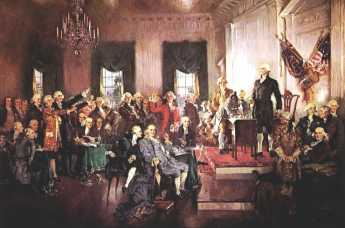
|
| The Varsity Comes Onto the Field |
It seems useful to point out the practical utility of defining citizens who "live" in a district, as being those who probably own land there. The Northwest Territory was a vast expanse of wilderness, much of which soon become the most valuable farmland in the world, with topsoil two feet thick. The rules of this land rush were that it was to be governed by Federal troops until there were five thousand male settlers, presumably the minimum sufficient to defend against hostile Indians. However, the assumption of political power, along with its ability to set the rules, offered a temptation to find ways of making the number unreasonably easy to reach or temporarily composed of a particular political group. Demanding that eligible citizens must each own a liveable plot of farmland probably seemed wise precaution against carpet-bag "voters" being temporarily imported for the voting. A similar provision was soon included in the Constitution, although that is often held up by partisan writers as proof of aristocratic leanings among the Constitutional Framers. With land selling for fifteen cents an acre, it seems more likely it was a practical test of genuine residence, the Eighteenth century equivalent of presenting a driver's license as identification at the polling booth. In both instances, those suspected of impersonating local voters pretend to the great offense at the voicing of any suspicion of it.
The Northwest Territory eventually became Ohio, Indiana, Illinois, Michigan, and Wisconsin, plus a part of Minnesota. The dynamics of migration took unexpected turns. Although Ohio was the seventeenth state, admitted in 1803, Wisconsin was the thirtieth, waiting until 1848 for admission to statehood. For a while, a settlement was more rapidly toward the South, and near the region of the Louisiana Purchase. The Northwest Ordinance was in force without major amendment for almost fifty years.
Part of its durability can be traced to the prohibition of slavery in the Northwest Territory. The existing Southern states were remarkably peaceful about agreeing to slavery prohibition, a reaction said to arise from tobacco growing southern states indifferent to competition to their main crop, from areas with presumably higher labor costs. When the main crop soon turned from tobacco to cotton, the anti-competitive argument apparently had less force. One cannot contemplate the horrendous impending casualties of the Civil War without wondering if massaging of the competition argument might have been put to more imaginative use during the forty-year interval of free soil agitations. Unfortunately, since politicians did not appreciate the price they were about to pay for a policy of drift, they obstructed the (probably) much smaller costs of facing the issue sooner.
Grand Union
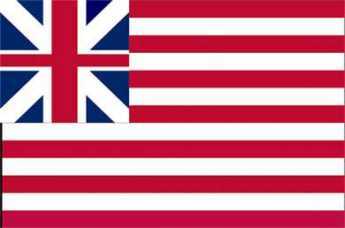
|
| Grand Union Flag |
THERE are a number of supermarkets in Philadelphia called Grand Union Stores, but the grocery conglomerate was founded in 1872. That Union was the Northern side in The American Civil War, and it is reported that life-sized replicas of Abraham Lincoln were once a common feature in the stores. Much earlier than that, the Grand Union was a term that meant the first American national flag, adopted in 1775, and created by a Philadelphia milliner, Margaret Manny. It was, however, quite similar to the flag of the British East India Company, and the Grand Union they were both talking about was the Union of England and Scotland of 1707. The jack of the Grand Union flag, soon to be replaced with a ring of thirteen stars, represented the crosses of England and Scotland, superimposed. When Northern Ireland joined the United Kingdom, the cross of Ireland was superimposed, to give the present form of the Union Jack. In 1775, the considerable colonial sentiment still hoped that hostilities would achieve a status for America along the lines of the other members of the United Kingdom.
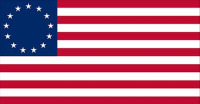
|
| "Betsy Ross" Flag |
Although the number of stripes in the national flag briefly increased to fifteen at the time of admission of Kentucky and Vermont, stripes soon reverted to thirteen to symbolize the original thirteen states. After that single exception, only the stars in the jack increased to match the number of current states.
The early use of the Grand Union Flag is in some dispute, but it may possibly have been used by George Washington in the various battles around Boston and Charlestown. It was most certainly flown by John Paul Jones on his ship the Alfred . Because of its resemblance to the flag of the nation we were fighting to overthrow, it is understandable that there would soon be a desire to change it. That is what happened in 1777, although just who first had the idea is still open to dispute and myth-making.
America has had three flag acts:
The Flag Act of June 14, 1777 was passed by the Second Continental Congress (under the Articles of Confederation, of course. June 14 is now called Flag Day.) "Resolved, That the flag of the United States be made of thirteen stripes, alternate red and white; that the union be thirteen stars, white in a blue field, representing a new Constellation."
The Flag Act of January 13, 1794 (1 Stat. 341) An Act making an alteration in the Flag of the United States. Be it enacted by the Senate and House of Representatives of the United States of America in Congress Assembled, That from and after the first day of May, Anno Domini, one thousand seven hundred and ninety-five, the flag of the United States, be fifteen stripes alternate red and white. That the Union be fifteen stars, white in a blue field.
The Flag Act of April 4, 1818 (3 Stat. 415) An Act to establish the flag of the United States. Be it enacted by the Senate and House of Representatives of the United States of America, in Congress Assembled, That from and after the fourth day of July next, the flag of the United States be thirteen horizontal stripes, alternate red and white: that the union be twenty stars, white in a blue field. And be it further enacted, That on the admission of every new state into the Union, one star be added to the union of the flag; and that such addition shall take effect of the fourth day of July then next succeeding such admission.
Writing and Ratifying the Articles of Confederation
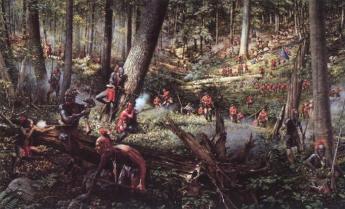
|
| French-Indian-War |
The Articles of Confederation were written during wartime conditions surrounding the attack on Philadelphia by the British and were initially adopted by the Continental Congress November 15, 1777. The Articles required unanimous ratification by all thirteen states, which was not attained until March 1, 1781, nearly four years later. The last hold-out state was Maryland, still concerned about its western borders. Almost all state borders had been under some degree of challenge during the interval between the French and Indian War and the American Revolution; Maryland still had a grievance. Robert Morris, unofficially running the government of America during the War, used the argument that lack of a stable agreement between the states greatly hampered his efforts to obtain foreign loans, and Maryland finally agreed. The change in status of the states from somebody's private property to common national ownership reduced the importance of defending internal boundaries. Local boundary issues changed from collective state grievances into petty complaints coming from individual landholders, thus exposing that personal quarrels often get dramatized into matters of local patriotism. Provisions of the Articles to permit free movement within the United States, and somewhat freer trade, encouraged more nationalistic viewpoints as the battle of Yorktown showed peace was approaching. The ability of the 1794 Eleventh Amendment to get ratified (prohibiting a citizen from suing another state in Federal Court), uncovers the threat to state power which was hidden in a unification of states and immediately perceived as such by local politicians. It might be noted that New Jersey and Pennsylvania never ratified this amendment, while an overwhelming majority of (Federal) Supreme Court Justices have seemed to favor undermining "state immunity".
The first draft of the Articles was written by the eminent lawyer John Dickinson, who provided for a stronger central government than the states proved ready for. Robert Morris, who finally pushed ratification of the Articles through to completion, had likewise refused to sign the Declaration. In both cases, uneasiness about anarchy and inflation was a major source of hesitation. By observing the positions of these two firm friends, it is possible to guess that the Articles already reflected a conflict between liberty and stability. The forces for prosperous stability temporarily yielded to more Romantic notions of freedom from government restraint, but only during the period of active hostilities with England. The conservatives waited until the evidence in their favor became unanswerable, and pushed the pendulum back toward orderliness, eight years later in 1787. As a timeless example of the two differing approaches, the difference is a stark one between the nation's inability to control Shays Rebellion in 1786 western Massachusetts, and President Washington's fierce restraint of western Pennsylvania's Whiskey Rebellion in 1791. To some extent, Washington's reaction was showmanship, but it was surely true that the United States was beginning to acquire a little taste for George III's viewpoint. Thomas Jefferson also noticed, rejected the concept utterly, and began to prepare his counter-attack.
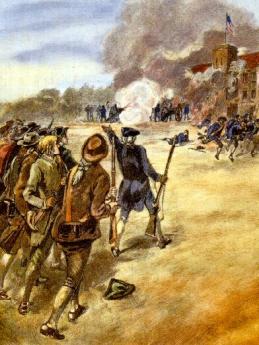
|
| Shays Rebellion |
Much more than the Articles of Confederation did, for all its proclamation of "perpetuity", The Constitution reflects a firm decision to establish a permanent national government. The Articles required unanimous consent of the states for most actions of Congress, and often resorted to supermajorities of two thirds in other situations. It conducted its affairs through committees of Congress, lacking any national executive or judicial branches. It thus invisibly gave the states which had such agencies a working veto power. Even appointed congressional committees were held on a tight leash. They were reappointed annually and term-limited to three years in any term of six. They voted by states, one vote per state. Although it was not explicitly stated that way, a consequence was the wartime national government had no real power to tax or to enforce its will against an unwilling state. It was a miracle we won that war, but the later obstacles to peaceful prosperity were even more difficult since without an external enemy the consequences were less certain. In case there was any final lingering doubt, any power not expressly stated was to remain with the states. For emphasis, that statement was the second sentence in the document.
On the other hand, the Articles did insist that states should acknowledge the laws of other states, at least in the freedom to travel, to recognize marriages, and to agree to extradition. The Northwest Ordinance enacted under the Articles of Confederation encouraged free public education, trial by jury, and due process. Progress in these areas laid the foundation for further progress under the Constitution and carried with it the implication that the romanticists for liberty did not consider national government power to be a threat in such areas. The view seems to have been that many government powers were harmless, but military power was so particularly dangerous to freedom that it was worth risking some freedom to constrain it. As we will see later, the Constitution was much more precise about what powers an effective government absolutely must have, if it is to defend the nation. And its eyes were more open to the benevolent peacetime potential of a central government. The Constitutional Convention might have achieved such goals by amending the Articles, except for the power which the Articles gave the states to resist the changes. That power must first be crippled by other amendments with a menacing tone. A two-step process of curtailing overall state power, followed by curtailing specified state powers, was a daunting one. Reducing state power would always be resisted more vigorously than pursuing public benefits of some sort. Someone among the Federalists decided that a complicated amendment process would be chancier than just tossing the Articles out in one tumultuous action. Whoever proposed that tactic, eventually succeeded in winning his bet.
The Articles of Confederation and Perpetual Union (Complete Text)
Between The States of New Hampshire, Massachusetts-bay Rhode Island and Providence Plantations, Connecticut, New York, New Jersey, Pennsylvania, Delaware, Maryland, Virginia, North Carolina, South Carolina and Georgia.
ARTICLE I The Stile of this Confederacy shall be "The United States of America".
ARTICLE II Each state retains its sovereignty, freedom, and independence, and every power, jurisdiction, and right, which is not by this Confederation expressly delegated to the United States, in Congress assembled.
ARTICLE III The said States hereby severally enter into a firm league of friendship with each other, for their common defense, the security of their liberties, and their mutual and general welfare, binding themselves to assist each other, against all force offered to, or attacks made upon them, or any of them, on account of religion, sovereignty, trade, or any other pretense whatever.
ARTICLE IV The better to secure and perpetuate mutual friendship and intercourse among the people of the different States in this Union, the free inhabitants of each of these States, paupers, vagabonds, and fugitives from justice excepted, shall be entitled to all privileges and immunities of free citizens in the several States; and the people of each State shall free ingress and regress to and from any other State, and shall enjoy therein all the privileges of trade and commerce, subject to the same duties, impositions, and restrictions as the inhabitants thereof respectively, provided that such restrictions shall not extend so far as to prevent the removal of property imported into any State, to any other State, of which the owner is an inhabitant; provided also that no imposition, duties or restriction shall be laid by any State, on the property of the United States, or either of them.
If any person guilty of, or charged with, treason, felony, or other high misdemeanors in any State, shall flee from justice, and be found in any of the United States, he shall, upon demand of the Governor or executive power of the State from which he fled, be delivered up and removed to the State having jurisdiction of his offense.
Full faith and credit shall be given in each of these States to the records, acts, and judicial proceedings of the courts and magistrates of every other State.
ARTICLE V For the most convenient management of the general interests of the United States, delegates shall be annually appointed in such manner as the legislatures of each State shall direct, to meet in Congress on the first Monday in November, in every year, with a power reserved to each State to recall its delegates, or any of them, at any time within the year, and to send others in their stead for the remainder of the year.
No State shall be represented in Congress by less than two, nor more than seven members; and no person shall be capable of being a delegate for more than three years in any term of six years; nor shall any person, being a delegate, be capable of holding any office under the United States, for which he, or another for his benefit, receives any salary, fees or emolument of any kind.
Each State shall maintain its own delegates in a meeting of the States, and while they act as members of the committee of the States.
In determining questions in the United States in Congress assembled, each State shall have one vote.
Freedom of speech and debate in Congress shall not be impeached or questioned in any court or place out of Congress, and the members of Congress shall be protected in their persons from arrests or imprisonments, during the time of their going to and from, and attendance on Congress, except for treason, felony, or breach of the peace.
ARTICLE VI No State, without the consent of the United States in Congress, assembled, shall send any embassy to, or receive any embassy from, or enter into any conference, agreement, alliance or treaty with any King, Prince or State; nor shall any person holding any office of profit or trust under the United States, or any of them, accept any present, emolument, office or title of any kind whatever from any King, Prince or foreign State; nor shall the United States in Congress assembled, or any of them, grant any title of nobility.
No two or more States shall enter into any treaty, confederation or alliance whatever between them, without the consent of the United States in Congress assembled, specifying accurately the purposes for which the same is to be entered into, and how long it shall continue.
No State shall lay any imposts or duties, which may interfere with any stipulations in treaties, entered into by the United States in Congress assembled, with any King, Prince or State, in pursuance of any treaties already proposed by Congress, to the courts of France and Spain.
No vessel of war shall be kept up in time of peace by any State, except such number only, as shall be deemed necessary by the United States in Congress assembled, for the defense of such State, or its trade; nor shall any body of forces be kept up by any State in time of peace, except such number only, as in the judgement of the United States in Congress assembled, shall be deemed requisite to garrison the forts necessary for the defense of such State; but every State shall always keep up a well-regulated and disciplined militia, sufficiently armed and accoutered, and shall provide and constantly have ready for use, in public stores, a due number of filed pieces and tents, and a proper quantity of arms, ammunition, and camp equipage.
No State shall engage in any war without the consent of the United States in Congress assembled, unless such State be actually invaded by enemies, or shall have received certain advice of a resolution being formed by some nation of Indians to invade such State, and the danger is so imminent as not to admit of a delay till the United States in Congress assembled can be consulted; nor shall any State grant commissions to any ships or vessels of war, nor letters of marque or reprisal, except it be after a declaration of war by the United States in Congress assembled, and then only against the Kingdom or State and the subjects thereof, against which war has been so declared, and under such regulations as shall be established by the United States in Congress assembled, unless such State be infested by pirates, in which case vessels of war may be fitted out for that occasion, and kept so long as the danger shall continue, or until the United States in Congress assembled shall determine otherwise.
ARTICLE VII. When land forces are raised by any State for the common defense, all officers of or under the rank of colonel, shall be appointed by the legislature of each State respectively, by whom such forces shall be raised, or in such manner as such State shall direct, and all vacancies shall be filled up by the State which first made the appointment.
ARTICLE VIII. All charges of war, and all other expenses that shall be incurred for the common defense or general welfare, and allowed by the United States in Congress assembled, shall be defrayed out of a common treasury, which shall be supplied by the several States in proportion to the value of all land within each State, granted or surveyed for any person, as such land and the buildings and improvements thereon shall be estimated according to such mode as the United States in Congress assembled, shall from time to time direct and appoint.
The taxes for paying that proportion shall be laid and levied by the authority and direction of the legislatures of the several States within the time agreed upon by the United States in Congress assembled.
ARTICLE IX. The United States in Congress assembled, shall have the sole and exclusive right and power of determining on peace and war, except in the cases mentioned in the sixth article -- of sending and receiving ambassadors -- entering into treaties and alliances, provided that no treaty of commerce shall be made whereby the legislative power of the respective States shall be restrained from imposing such imposts and duties on foreigners, as their own people are subjected to, or from prohibiting the exportation or importation of any species of goods or commodities whatsoever -- of establishing rules for deciding in all cases, what captures on land or water shall be legal, and in what manner prizes taken by land or naval forces in the service of the United States shall be divided or appropriated -- of granting letters of marque and reprisal in times of peace -- appointing courts for the trial of piracies and felonies commited on the high seas and establishing courts for receiving and determining finally appeals in all cases of captures, provided that no member of Congress shall be appointed a judge of any of the said courts.
The United States in Congress assembled shall also be the last resort on appeal in all disputes and differences now subsisting or that hereafter may arise between two or more States concerning boundary, jurisdiction or any other causes whatever; which authority shall always be exercised in the manner following. Whenever the legislative or executive authority or lawful agent of any State in controversy with another shall present a petition to Congress stating the matter in question and praying for a hearing, notice thereof shall be given by order of Congress to the legislative or executive authority of the other State in controversy, and a day assigned for the appearance of the parties by their lawful agents, who shall then be directed to appoint by joint consent, commissioners or judges to constitute a court for hearing and determining the matter in question: but if they cannot agree, Congress shall name three persons out of each of the United States, and from the list of such persons each party shall alternately strike out one, the petitioners beginning, until the number shall be reduced to thirteen; and from that number not less than seven, nor more than nine names as Congress shall direct, shall in the presence of Congress be drawn out by lot, and the persons whose names shall be so drawn or any five of them, shall be commissioners or judges, to hear and finally determine the controversy, so always as a major part of the judges who shall hear the cause shall agree in the determination: and if either party shall neglect to attend at the day appointed, without showing reasons, which Congress shall judge sufficient, or being present shall refuse to strike, the Congress shall proceed to nominate three persons out of each State, and the secretary of Congress shall strike in behalf of such party absent or refusing; and the judgement and sentence of the court to be appointed, in the manner before prescribed, shall be final and conclusive; and if any of the parties shall refuse to submit to the authority of such court, or to appear or defend their claim or cause, the court shall nevertheless proceed to pronounce sentence, or judgement, which shall in like manner be final and decisive, the judgement or sentence and other proceedings being in either case transmitted to Congress, and lodged among the acts of Congress for the security of the parties concerned: provided that every commissioner, before he sits in judgement, shall take an oath to be administered by one of the judges of the supreme or superior court of the State, where the cause shall be tried, 'well and truly to hear and determine the matter in question, according to the best of his judgement, without favor, affection or hope of reward': provided also, that no State shall be deprived of territory for the benefit of the United States.
All controversies concerning the private right of soil claimed under different grants of two or more States, whose jurisdictions as they may respect such lands, and the States which passed such grants are adjusted, the said grants or either of them being at the same time claimed to have originated antecedent to such settlement of jurisdiction, shall on the petition of either party to the Congress of the United States, be finally determined as near as may be in the same manner as is before prescribed for deciding disputes respecting territorial jurisdiction between different States.
The United States in Congress assembled shall also have the sole and exclusive right and power of regulating the alloy and value of coin struck by their own authority, or by that of the respective States -- fixing the standards of weights and measures throughout the United States -- regulating the trade and managing all affairs with the Indians, not members of any of the States, provided that the legislative right of any State within its own limits be not infringed or violated -- establishing or regulating post offices from one State to another, throughout all the United States, and exacting such postage on the papers passing through the same as may be requisite to defray the expenses of the said office -- appointing all officers of the land forces, in the service of the United States, excepting regimental officers -- appointing all the officers of the naval forces, and commissioning all officers whatever in the service of the United States -- making rules for the government and regulation of the said land and naval forces, and directing their operations.
The United States in Congress assembled shall have authority to appoint a committee, to sit in the recess of Congress, to be denominated 'A Committee of the States', and to consist of one delegate from each State; and to appoint such other committees and civil officers as may be necessary for managing the general affairs of the United States under their direction -- to appoint one of their members to preside, provided that no person be allowed to serve in the office of president more than one year in any term of three years; to ascertain the necessary sums of money to be raised for the service of the United States, and to appropriate and apply the same for defraying the public expenses -- to borrow money, or emit bills on the credit of the United States, transmitting every half-year to the respective States an account of the sums of money so borrowed or emitted -- to build and equip a navy -- to agree upon the number of land forces, and to make requisitions from each State for its quota, in proportion to the number of white inhabitants in such State; which requisition shall be binding, and thereupon the legislature of each State shall appoint the regimental officers, raise the men and cloath, arm and equip them in a solid-like manner, at the expense of the United States; and the officers and men so cloathed, armed and equipped shall march to the place appointed, and within the time agreed on by the United States in Congress assembled. But if the United States in Congress assembled shall, on consideration of circumstances judge proper that any State should not raise men, or should raise a smaller number of men than the quota thereof, such extra number shall be raised, officered, clothed, armed and equipped in the same manner as the quota of each State, unless the legislature of such State shall judge that such extra number cannot be safely spread out in the same, in which case they shall raise, officer, cloath, arm and equip as many of such extra number as they judge can be safely spared. And the officers and men so clothed, armed, and equipped, shall march to the place appointed, and within the time agreed on by the United States in Congress assembled.
The United States in Congress assembled shall never engage in a war, nor grant letters of marque or reprisal in time of peace, nor enter into any treaties or alliances, nor coin money, nor regulate the value thereof, nor ascertain the sums and expenses necessary for the defense and welfare of the United States, or any of them, nor emit bills, nor borrow money on the credit of the United States, nor appropriate money, nor agree upon the number of vessels of war, to be built or purchased, or the number of land or sea forces to be raised, nor appoint a commander in chief of the army or navy, unless nine States assent to the same: nor shall a question on any other point, except for adjourning from day to day be determined, unless by the votes of the majority of the United States in Congress assembled.
The Congress of the United States shall have power to adjourn to any time within the year, and to any place within the United States, so that no period of adjournment be for a longer duration than the space of six months, and shall publish the journal of their proceedings monthly, except such parts thereof relating to treaties, alliances or military operations, as in their judgment require secrecy; and the yeas and nays of the delegates of each State on any question shall be entered on the journal, when it is desired by any delegates of a State, or any of them, at his or their request shall be furnished with a transcript of the said journal, except such parts as are above excepted, to lay before the legislatures of the several States.
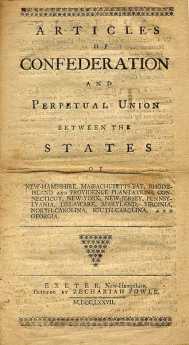
|
| Articles of Confederation |
ARTICLE X. The Committee of the States, or any nine of them, shall be authorized to execute, in the recess of Congress, such of the powers of Congress as the United States in Congress assembled, by the consent of the nine States, shall from time to time think expedient to vest them with; provided that no power be delegated to the said Committee, for the exercise of which, by the Articles of Confederation, the voice of nine States in the Congress of the United States assembled be requisite.
ARTICLE XI. Canada acceding to this confederation, and adjoining in the measures of the United States, shall be admitted into, and entitled to all the advantages of this Union; but no other colony shall be admitted into the same unless such admission be agreed to by nine States.
ARTICLE XII. All bills of credit emitted, monies borrowed, and debts contracted by, or under the authority of Congress, before the assembling of the United States, in pursuance of the present confederation, shall be deemed and considered as a charge against the United States, for payment and satisfaction whereof the said United States, and the public faith are hereby solemnly pledge.
ARTICLE XIII. Every State shall abide by the determination of the United States in Congress assembled, on all questions which by this confederation are submitted to them. And the Articles of this Confederation shall be inviolably observed by every State, and the Union shall be perpetual; nor shall any alteration at any time hereafter be made in any of them; unless such alteration be agreed to in a Congress of the United States, and be afterward confirmed by the legislatures of every State.
And Whereas it hath pleased the Great Governor of the World to incline the hearts of the legislatures we respectively represent in Congress, to approve of, and to authorize us to ratify the said Articles of Confederation and perpetual Union. Know Ye that we the undersigned delegates, by virtue of the power and authority to us given for that purpose, do by these presents, in the name and in behalf of our respective constituents, fully and entirely ratify and confirm each and every of the said Articles of Confederation and perpetual Union, and all and singular the matters and things therein contained: And we do further solemnly plight and engage the faith of our respective constituents, that they shall abide by the determinations of the United States in Congress assembled, on all questions, which by the said Confederation are submitted to them. And that the Articles thereof shall be inviolably observed by the States we respectively represent, and that the Union shall be perpetual. In Witness whereof, we have hereunto set our hands in Congress.
DONE at Philadelphia, in the State of Pennsylvania, the 9th day of July, in the Year of our Lord 1778, and in the third year of the independence of America.
The aforesaid articles of Confederation were finally ratified on the first day of March 1781; the state of Maryland having, by their Members in Congress, on that day acceded thereto and completed the fame.
Perpetual?
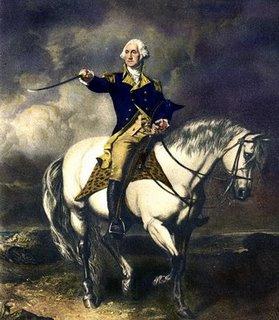
|
|
George Washington Was he the 11th President of the United States? |
We must be indebted to Stanley L. Klos for his recent book called President Who? in which he makes a persuasive case that George Washington was actually the eleventh President of the United States, there have been ten previous Presidents under the Articles of Confederation. The awkward fact that the Articles were not ratified until 1781, is a different sort of issue which possibly helps explain some of the confusion.
In general, the attitude had been that the ten previous Presidents had merely been the presiding officers of Congress, holding an office we might now call Speaker. Indeed, the President under the Constitution doesn't "preside" over anything definable, although the Vice-president clearly presides over the Senate, at least on the infrequent occasions when he is in the room. All of this would seem to be nit-picking wordplay by history hobbyists, except for one thing.
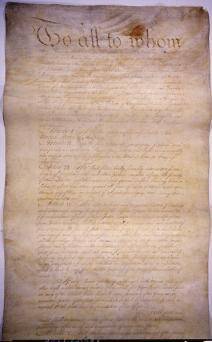
|
|
Lincoln raised the issue whether states who ratified the Articles of Confederation, among other documents, were bound in perpetuity to be members of the United States. |
Abraham Lincoln was having a hard time finding a reason to challenge South Carolina's right to secede, which was later depicted by the state as simply revoking its previous ratification of the Constitution in 1789. If they could join the Union, they could un-join the Union, so, Goodbye.
Not so, said Lincoln. When South Carolina ratified the Articles of Confederation in 1778, those Articles clearly stated the Union was to be perpetual, or at least the Articles uniting the colonies were to be so. Articles of Confederation: Article XIII. Every State shall abide by the determination of the United States in Congress assembled, on all questions which by this confederation are submitted to them. And the Articles of this Confederation shall be inviolably observed by every State, and the Union shall be perpetual; nor shall any alteration at any time hereafter be made in any of them; unless such alteration be agreed to in a Congress of the United States, and be afterward confirmed by the legislatures of every State. That sounds pretty perpetual to most readers, making the Constitution merely a clarification of details, or at most an amendment to the Articles of Confederation. There is a strong implication that the intent of Article XIII was to prevent individual states from making a separate peace with Great Britain, or Britain from claiming conquered territory was no longer American.There's no doubt the Articles do say perpetual and no doubt South Carolina signed them. However, it is equally certain that Alabama, Arkansas, Louisiana, Mississippi, and Texas did not sign the Articles. Six hundred thousand casualties later, this fine legal dispute was settled in Lincoln's favor, but not before the Gettysburg Address further muddled Constitutional Law by proposing in effect that the Declaration of Independence formed the basis for the Constitution. However, a speech at a ceremony hardly qualifies as a national ratification, and the Gettysburg Address did not achieve much acclaim for several more decades, suggesting later politicians were doing some special pleading, To include either the Declaration or the Gettysburg Address in a discussion of Constitutional intent is to ignore a lot of contemporary history. Many of the clauses and even some of the wording of the Constitution is taken directly from the Articles to the Constitution, whereas the claim tracing origin in the Declaration of Independence is based on the conflict between the two in the "All men are created equal" versus the later assignment in the Constitution of only 3/5 of a vote for slaves. The party of Thomas Jefferson can only make the claim that the Declaration made an assertion which was later overturned by the Constitution, only to be reversed again by the Civil War and the Fourteenth Amendment. Only the Articles and the Constitution itself can claim to have been intended as a system of governance, with at least some attempt made to obtain general ratification, followed by long periods of conforming to them, to display even stronger ratification. It may be humanitarian, but it is not good history to assert that a Declaration is Law.
So now Philadelphia has two large, competing, institutions at either end of a long grassy Mall on Sixth Street, Chestnut to Vine. Each has a paid staff, busily organizing new points of view in competition for legal authority as well as visitors. One really must wish that Lincoln had found some other legal theory to justify military action. The Articles of Confederation, which were anyway not fully ratified until 1781, established a military alliance of thirteen otherwise fairly autonomous states. The Constitution, beginning with the words We, the People, created a nation of citizens, in 1788.
There's quite a difference, and the second was emphatically based on dissatisfaction with the first. It thus is a favorite theme for those who argue for a "living" Constitution, in which any change at all is legitimate if enough people clamor for it. My own view of this, if anyone cares, is that our Union is the only example in history where a number of viable sovereign states voluntarily and permanently surrendered their powers to become a "more perfect union". Many others have tried to do the same, starting with the French Revolution and continuing with the United Nations and the European Union. So far, every other attempt has been a failure. So I am very reluctant to see us tinker with the Constitution because the invisible balances are so subtle and largely unspoken. It may not be perfect, but so far it is unique in being the only one that seems to work. Such pious worship of a mystery seems to offend a lot of people, so let's get a little more pointed.
The greatest enemy of the Constitution at the time it was formed was Thomas Jefferson, the Ambassador to France at the time of the French Revolution, which he much admired. Jefferson was reluctant to confront George Washington, so his resistance to the Constitution was circumspect. However, he formed a political party with the main principle of opposing strong central government. One of the activities of his party was to start to celebrate July 4 as a National holiday and to downgrade the importance of Washington's birthday as one. There can be little doubt that Washington's birthday has been dropped from the national calendar and replaced by President's Day, while the celebration of July 4 continues to be an occasion for speeches and fireworks. John Adams engaged in a long correspondence with Jefferson after both had stepped down from the Presidency. While the two made their peace with each other on many subjects, Adams never forgave this celebration of the Declaration as a sacred text, when in fact he believed it had little to do with history and was outspoken in his scorn for its importance. One can only imagine the apoplectic speech Adams would give today if he could come alive and comment on the dilution of Washington's birthday with Lincoln's, diminishing the memory of both. And as for his scorn for dating the beginning of the Revolution to July 4, 1776, when in fact fighting had been going on at Lexington, Concord, Bunker Hill and other places for years, well. If it comes to a battle of documents, a respectable case can be made that the beginning of the Revolutionary War was in December, 1775 when the British Parliament passed the Prohibitory Act, effectively declaring war on the rebellious colonies, meanwhile dispatching a war fleet of several hundred ships to America to subdue us.
American Articles of Confederation, Valuable or Hindrance?
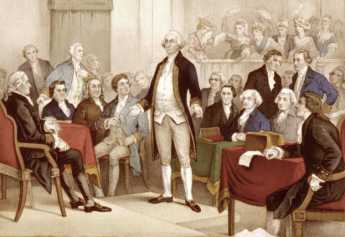
|
| Continental Congress |
THE British may well have been high-handed with their American colonies, but they were precise while enacting the Prohibitory Act of December 1775 about why they would attack militarily in 1776. Their American subjects had formed a rebel government in 1775 called the Continental Congress, which then dispatched an Army under George Washington to wage war against British forces in Boston; and then showed no signs of disbanding. What could you call that, except an armed mutiny?
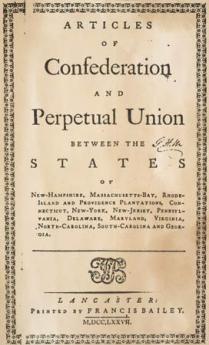
|
| Articles of Confederation |
The American colonists naturally had a different viewpoint. Because of the Prohibitory Act of 1775, they needed an established government of some sort to exist if war came, preferring not to be hanged for treason in defense of their rights as British subjects. Their primary grievance, at least at first, was taxation without representation. Many colonists were resistant to more than temporary independence from Britain. The most common goal of American moderates was then a variant of commonwealth similar to what was being discussed for Ireland. Once the British navy actually attacked, however, a strategic document describing what was contemplated for the far future was counter-productive. Strategic discussion bogged down into meaningless disputes between conservatives who wanted a strong central government, and radicals who argued for states' rights, neither of which was sufficiently tactical with British soldiers marauding the land.
To repeat the default position: Fighting the British fleet off Staten Island risked immediate hanging from the yardarm for treason, and the Articles of Confederation served the immediate purpose of legitimizing that. Lawyers may sometimes get lost in their own reasoning, but in this case, the advice was sound. Reconsidering the Articles after the Treaty of Paris was more appropriate, a smokescreen now only useful for confusing an angry British Admiral.
Although John Dickinson produced a workmanlike document in 1777 called the Articles of Confederation, it was weakened and not closely followed; formal ratification drifted during the first four years of the war. The chaotic situation also provided a pretext for some of the colonies to contribute less money or troops than their representatives promised. However, after five years of bloody warfare, an unratified Constitution became increasingly hard to justify, its disadvantages eventually outweighing any argument in favor. Robert Morris also decided the Articles needed to be ratified, as a sign of sufficient unity to justify long-term loans to them.
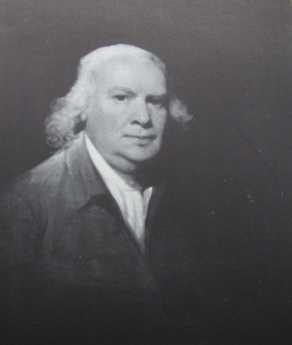
|
| Robert Morris |
Morris at that time was called the Financier, a poorly defined office which in his aggressive hands meant Morris was effectively running the country. His position put him in the center of unenforceable promises of aid from the thirteen states, justified to him in all the contradictory ways of beleaguered debtors. Morris was enough of a businessman to know that hard-pressed debtors frequently offer weak excuses. So, whether he felt he was thwarting phony evasions, or really believed the states had legal concerns, he pressed ahead vigorously for ratification of the Articles of Confederation. This was soon accomplished in 1781, but unfortunately, it made little difference. It can be safely surmised this experience hardened his long-expressed conviction that every federal government must at a minimum have realistic power to collect taxes to service its debts. But to accomplish that, now required those ratified Articles must be amended or replaced; he had made everything more difficult. It would now be six more years before the "perpetual" Articles could be unraveled, in the form of a new Constitution. That provided for federal taxation and going forward made it considerably easier to amend than by unanimous consent of all the states. There remained the awkwardness of that term "Perpetual". The whole experience was exasperating, but it surely left him and others determined not to be dissuaded by fine points of legal language.
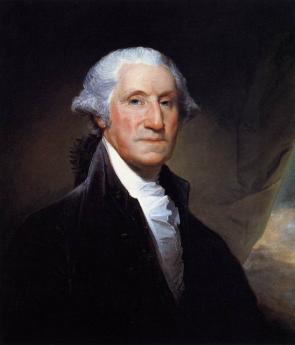
|
| George Washington |
Any perpetual agreement never to allow amendment (except by unanimous consent) is visibly unwise, but that was what confronted those who now proposed to amend the Articles. At the least, it pushed the decision in favor of replacing the whole document. It was easier to brush aside a perpetual legal document, as unreasonable than to argue that obtaining thirteen votes was impossible. George Washington had spent a lifetime constructing a reputation for always keeping his word. If even Washington could agree the situation was unreasonable, the public was of a mind to accept that absolutely anyone should agree. Anyway, the reasoning behind the language in the first place was that thirteen former colonies were joining together for a larger Union which would continue after the Revolution. It was the Union which was meant to be perpetual, not the Articles. Curiously, this change also made it easier to expand the union; imagine the difficulty of obtaining unanimous votes from fifty constituent states. There almost seems to be an ominous political axiom buried in this situation: as the number of voters grows, the majority margin must narrow if a deadlock is to be avoided.
The Revolutionary War, begun in 1775, continued from 1781 (Yorktown) to 1783. Even during four succeeding years of peaceful governance under the Articles, from the Treaty of Paris (1783) to the Constitutional Convention (1787), not a great deal happened. But a few things did come up to test the usefulness of the Articles. The small war between Connecticut and Pennsylvania was settled by the Decision of Trenton, although state boundaries became largely formalities after the country was unified by Article IV of the Constitution. The Northwest Ordinance was passed. And the Constitutional Convention was agreed to. Several flags were tested and adopted. Robert Morris had swept aside the habit of micro-managing the country by Congressional Committee, delegating government departments to bureaucracy in the process. Of all these activities, the most important was the Northwest Ordinance, which demonstrated that important governmental innovations could actually be accomplished under the Articles.
Democracies all like to talk too much. Their constitutions typically run to hundreds of micro-managed pages, and get everyone confused, unless they are unwritten, which is really confusing. It's hard to remember, but the Articles were the first written constitution, and to this day no other former member nation of the British Commonwealth has a written constitution. By giving things a trial run in the Articles of Confederation, we learned what is important and wrote it down. The second time around, tested in war and in peace, we made important revisions. By the time of the Civil War, we had a written governing document that men would die for because they understood it and approved.
Signers of the Articles of Confederation
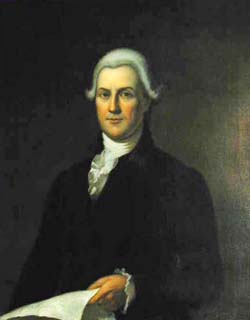
|
| Samuel Huntington |
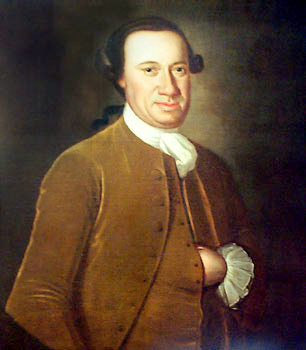
|
| John Hanson |
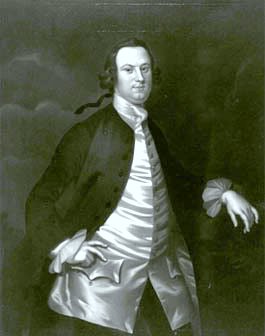
|
| Daniel Carroll |
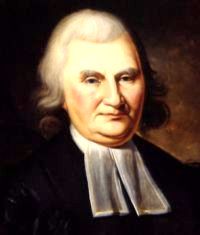
|
| John Witherspoon |
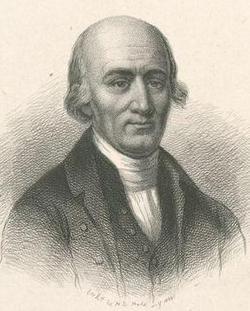

|
| William Clingan |
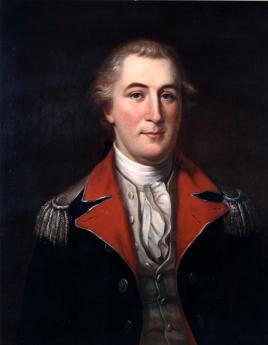
|
| Joseph Reed |
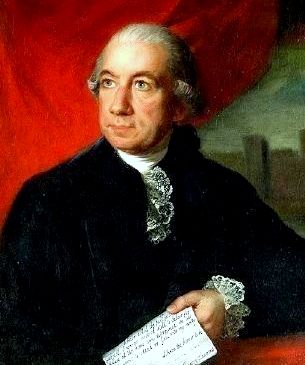
|
| Henry Laurens |
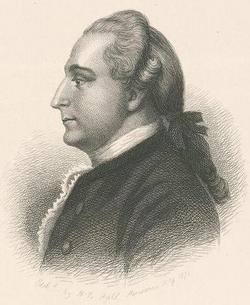
|
| William Henry |
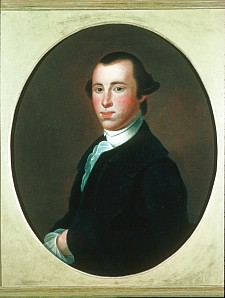
|
| Thomas Heyward |
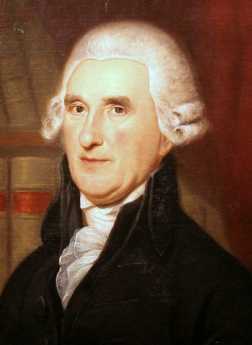
|
| Thomas McKean |
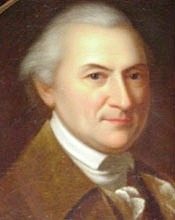
|
| John Dickinson |
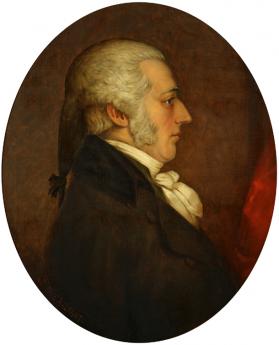
|
| Nicholas Van Dyke |
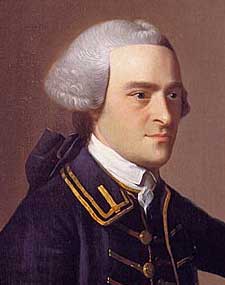
|
| John Hancock |
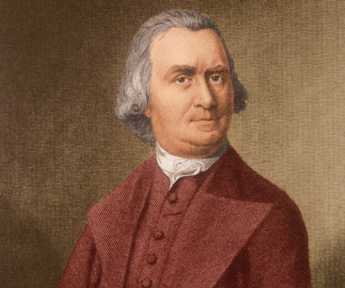
|
| Samuel Adams |
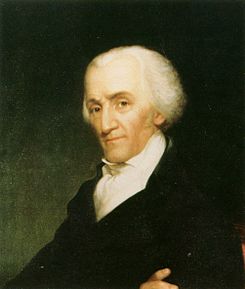
|
| Elbridge Gerry |
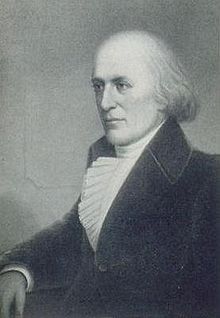
|
| Francis Dana |
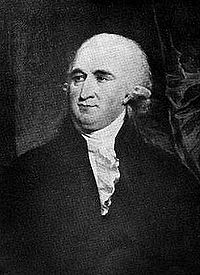
|
| James Duane |
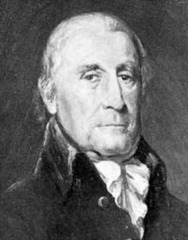
|
| Francis Lewis |
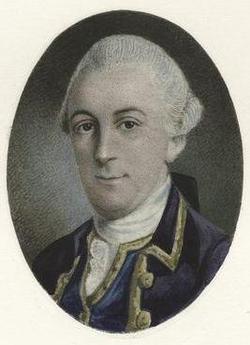
|
| William Duer |
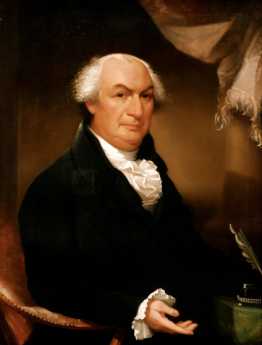
|
| Gouverneur Morris |
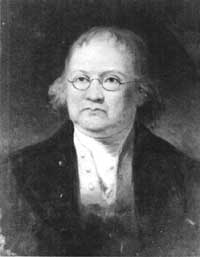
|
| William Ellery |
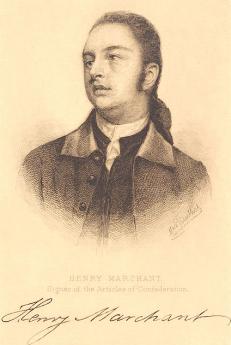
|
| Henry Marchant |
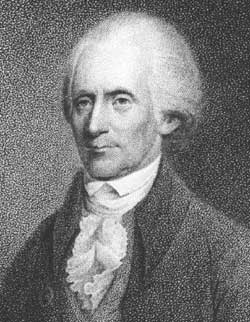
|
| Richard Henry Lee |
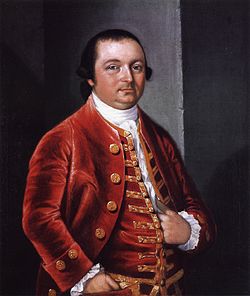
|
| John Banister |
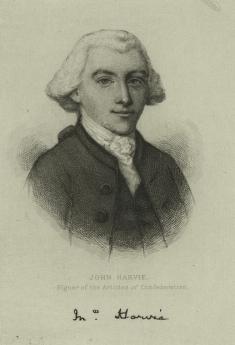
|
| John Harvie |
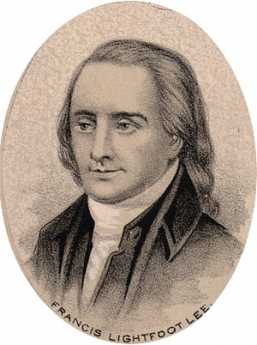
|
| Francis Lightfoot Lee |
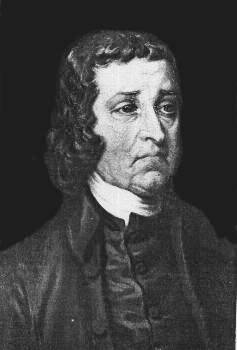
|
| Josiah Bartlett |
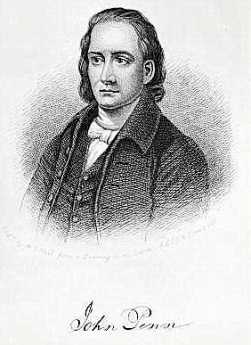
|
| John Penn |
ARCHITECTURE OF GOVERNMENT: (1) ARTICLES OF STRUCTURE
Although an outstanding feature of the United States Constitution is its brevity, by contrast, the Articles of Confederation which it replaced contained scarcely anything at all. Stripped of boilerplate, the Articles amounted to an oath of perpetual allegiance between thirteen colonial tribes who banded together to fight a common enemy. The document began with a firm statement that the constituent states retained their right to write their own rules. No national rules could be made without the consent of every state. Moreover, since enforcement powers remained with the states, the states could ignore national rules at will, even if they had agreed to the rules. Once the Treaty of Paris concluded the Revolutionary War conferring an immense domain to the East of the Mississippi River, the thirteen states had to decide whether to remain united in a single nation or to parcel out the wilderness into thirteen pieces within a sort of Europe of North America. They tried to continue the Articles for four peacetime years, but their populations were too small for all the tasks. They could no more govern all that territory than they could individually defeat Great Britain in the recent war. Looking ahead for a moment, after another eighty years of immigration, the southern states would reopen that issue, but in 1787 such a demanding adventure seemed too daunting to everyone. While eight years of fighting a guerrilla war loosely bound together might have seemed the most they could do, George Washington now wanted a big nation he could be proud of, and meanwhile, Britain, France, and Spain were still making threatening gestures. It seemed plausible to consider what the new leadership forged in the Revolution could propose, maybe give it a try. George Washington certainly had the stature to step forward and say that the nation need not be bound by that silly wartime oath to make the Articles "perpetual" if the times required a different approach. And that was plainly the case. No one, not even Thomas Jefferson or Patrick Henry who privately disagreed, had the courage to confront the General.
Washington was in the embarrassing position of having made a great show of permanently withdrawing from public life, but he was willing to stage-manage his way around that issue. The greater problem was his inexperience in the design of governments; he had not even gone to college and was uncomfortable about it. His young Virginia neighbor James Madison had studied the matter seriously with Witherspoon at Princeton and was anxious to make a name for himself as the designer of a new government, basking in the protection of the great General. There was general agreement that the New England town meeting version of democracy, based on small towns in ancient Athens, was unsuitable without a better way to expand its size. Well before young Madison appeared on the scene, Great Britain had popularized the Roman Republic as a model, and it became practically a foregone conclusion the United States should be a republic. Local communities should identify some trusted representative to understand and represent their interests within a deliberative body collecting the best interests of the whole nation. Unfortunately, this had been vaguely the concept of the Continental Congress, in which actual governance was conducted through select committees of the Congress. It had really not worked very well, and Robert Morris as acting administrator in 1778 immediately replaced administrative committees with permanent departments of administration, which worked much better. The leaders of Revolutionary America were in rebellion against a heavy-handed King, so they intentionally avoided a chief of state who might get ideas resembling those of Julius Caesar. However, the contrasting experiences of Congressional committees and Morris's permanent departments emerged as fairly decisive after anti-monarchy feelings began to subside. Washington remained adamant he wanted no part of monarchy for himself or anyone else, however. The problem was resolved by recognizing that if a presidency were created, Washington would surely fill the office. It was more or less openly decided it was safe enough to put Washington in the job and let him figure out what to do with it. Unfortunately, Washington was not immortal, was succeeded by a tumultuous Presidency of John Adams, and the nearly disastrous tied election of 1800. While it could be argued that the vagueness of his powers and duties in the eventual Constitution was a necessary concession to the ambiguous requirements of the Presidency of a new nation, the flaws of the Constitution's address of Presidential succession were careless in the extreme. History is replete with hundreds of examples of wars and assassinations associated with the succession of chief executives. For thousands of years, many societies have even concluded that the obvious flaws of hereditary kingship were to be preferred to the chaos which regularly results from trusting the personal ambitions of candidates to sort matters out.
So it was almost a foregone conclusion the new government would have a congress based on the republican model and a president. It was also clear that the British common law was about as good a judicial model as could be devised by any convention, and it had the universal allegiance of the legal profession. To start a new nation it is necessary to have a comprehensive system of laws from the very first day; Congress could later review and modify the common law to suit American needs. What then remained to be decided was the method of appointing judges, a question to which there seems to be no perfect answer in any state or nation. The lawyers in a jurisdiction know well enough who of their number is fair and learned, but it does not always suit their clients to argue before a fair and learned judge; clients only want to win their case. The public might elect judges impartially, but the public is seldom in a position to know the candidates, so it abandons the elections to the politicians. The politicians have their own agendas, and it is unfortunately not considered necessary in some districts for a politician to be impartial or even honest. To become a judge you have to ask who has the power to appoint you. And then you have to ask, what does that person want in return? In some districts, the answer is $100,000 in a campaign contribution. A person who agrees to that condition is not necessarily a bad judge when in office, but if he wants a promotion to a higher judgeship he has to ask the same question: who has the power to promote me, and what does he want? The judicial appointment question seems to have no good answer, but many American lawyers have been persuaded that the British system of the Inns of Court is superior. That system can be roughly summarized as sending a likely youth to "Judge School" in early adolescence and intoning Judicial ethics at him for the rest of his life in a judicial cloister. It must be recalled, however, that Margaret Thatcher hated the Inns of the Court system for some reason, and did her best as Prime Minister to abolish it.
Under the circumstances, the Constitutional solution to appointing judges is the most appealing alternative we have. First of all, the appointment of state and local judges is a matter left to the individual states to decide. Justices of the United States Supreme Court are nominated by the President, appointed by a vote of the Senate to serve for a lifetime, subject only to impeachment proceedings for bad behavior. The Chief Justice (not the President or anyone else in the Executive Branch) is the chief administrator of Federal Courts, which essentially imitate the appointment process of the Supreme Court. It is remarkable how useful a lifetime appointment can be. Insulated from political pressures, federal judges can expect to serve under several different political parties. Except in a few rotten boroughs permanently under one-party control, a politician in power can expect to have any judge he offends, still be a judge after the politician leaves office, but the reverse is usually not the case. Although the rules are different, the effect of lifetime appointment is much the same as lifetime cloistering under the British system, with the exception that it does not apply to the barristers representing clients, as it does in England.
So now we have approximated the three branches of government before the Constitutional Convention has even convened: a republican-style congress, an independently elected executive, and a lifetime judiciary. The genius of the Convention was what they did with this set of expectations.
Declaration of Independence
zzzbill of Rights
This topic is complete; blogs edited, sequence adjusted. It may need a section on slavery, and more bridging.Human Rights

|
| AMA Logo |
ABOUT ten years ago, I first encountered the use of the term "Human Rights". Seated as a member of the House of Delegates of the American Medical Association, I was distracted when a late resolution was passed around for urgent consideration. Such resolutions require a supermajority to be introduced as a business of the House, either two thirds, or three-quarters of the attendees, and a little speech by the author explaining the "reason for lateness". The resolution was a one-line request for endorsement of the concept of Human Rights by the American Medical Association. The stammering explanation for lateness (as distinguished from holding it over to the next meeting) was that it was self-evident that the Association would favor human rights and immediately place it on the "Consent Calendar" for approval without voting on it. Like everyone else in the room, I looked to my seatmate neighbor to ask what this was all about. No one knew, so the author was asked to explain. Well, it was about human rights, not animal rights or corporate rights, and was otherwise so self-evident it needed no further explanation. Just what was in the mind of others seated in that room I cannot say, but to me, the resolution seemed like nonsense, whose author seemed very innocent and naive. In any event, the resolution was dismissed, the paper discarded, and we went on to the medical issues we were there to discuss.
.jpg)
|
| Bill of Rights |
In fact, the whole concept of prosecution for human rights violation is too vague to be useful. When individuals commit outrageous crimes, the matter can normally be handled under the criminal code, with the offense defined and appropriate punishment described in advance. Murder and torture are not commonly affected by whether or not rights have been violated. On the other hand, offenses by component national states are usually regarded as acts of war; if Ghengis Kahn were accidentally admitted to the EU, the punishment would start with expulsion from the Union, and surely go on to war, essentially the same outcome. A nation which was able to deal with the Iroquois and the Comanche tribes surely has no nightmares about Nebraska electing Pol Pot as governor. The human rights advocates have simply got to make a more plausible case for revolutions in our criminal justice system, if they are to be taken seriously.
Those Troublesome Lees of Virginia

|
| Richard Henry Lee |
SOMETHING useful can, of course, be learned from a man's friends, but descriptions given by his enemies are usually briefer. The Lee family of Westmoreland County Virginia were bitter enemies of Robert Morris the Financier of the Revolution, and they surely said some unfair things about him. Morris paid as little attention to the Lees as possible, but for generations, the Lees had been neighbors of the Washingtons, and so could not be completely brushed aside. Furthermore, they were close to the center of Thomas Jefferson's anti-Federalist party. So insights into the Lee family probably illuminate the main disputes before, during, and after the Revolution. They even illuminate the mixed character of George Washington, who was sometimes unusual by Virginia standards. Nevertheless, the Lees had the same quality of heedless idealism to be found in Samuel Adams of Massachusetts and Patrick Henry of Virginia which goes beyond the ability of two-feet-on-the-ground revolutionaries like Robert Morris and Benjamin Franklin to understand, or even abide; this conflict runs throughout the history of the American founding. It seemed to baffle even those who switched positions, like James Madison going in a leftish direction, and Thomas Paine, going toward the right. So, although reckless idealism cannot be an inborn character, it must quickly acquire very deep roots.
.jpg)
|
| Arthur Lee |
Arthur Lee and his brothers William and Richard Henry Lee of Virginia, were passionate rebels of the Patrick Henry ("Give me liberty or give me death") sort, intermittently reviving lifelong attacks on Robert Morris. Highborn Tidewater aristocrats, they were ancestors of Virginia's revered General Robert E. Lee. Arthur had even attended Eton College and later studied medicine in England. The Lee brothers started attacking Robert Morris well before his famous abstention from the critical 1776 vote on independence. It's much too easy to shrug the Lees off as landed aristocrats who disdained self-made men, or as passionate Jacobins who hated self-made rich people, or maybe just narrow-minded nuts. Out of their often inaccurate attacks emerges an outline of what a lot of other people thought about Robert Morris. Many of these polar mind-sets outline the main divisions of political strife in America right up to the present. For present purposes, let's try to understand why Morris might risk his substantial fortune in underground smuggling before the war, and then dedicate his huge energies to winning the war -- while at the same time, not only refuse to agree to the Declaration of Independence (he did finally sign it in August 1776), but speak out in public opposition to independence. What explains Morris' apparent double-talk?
<The explanation I choose to accept is that Robert Morris' real feelings were too sophisticated for this particular crisis, reaching clearer expression in his later activities promoting the Articles of Confederation and its revision the United States Constitution. A man given to terse one-liners, Morris said in December 1775 that he joined his fellow Americans in striving for "Constitutional Liberty" but could not join them in promoting independence.
Morris was never explicit about what would achieve Liberty without Independence; perhaps something like the independent Irish parliament which English Whigs then supported, or the Scottish local parliament which exists today, was in his mind. Both of them link a single King to a commonwealth. At the time, no one was interested in the political philosophy of a shipping merchant.
But today we are in a position to see no member nation of the British Commonwealth has a written constitution; written constitutions are a comparatively recent innovation and not necessarily an essential one. The American Constitution today continues to argue about original intent and living documents, so it is still possible to prefer the wisdom of a benign King to written constitutions. The British goal seems to be to infuse overarching principles of government so deeply into citizen minds that such principles overwhelm any written commandments, however vague all that may sound to outsiders who prefer to niggle over documents. Not in America, of course, because an immigrant nation like ours cannot grow cultural roots sufficiently deep in a few generations, and must have written rules. Great Britain's recent difficulties with immigrants from the Commonwealth may well reassert the limits of unwritten constitutions; constant questioning of the written American constitution by more recent immigrant groups may become a part of the British life, too.
The Articles of Confederation were written by the eminent lawyer John Dickinson, said to be the man closest to sharing Robert Morris' political philosophy. However, for five years the Articles were unratified, and Morris began to believe this lack of ratification was the reason the states were so resistant to taxation. So Dickinson gets credit for writing the Articles, but Morris must be seen as their father. Believing the lack of federal taxation was the main difficulty, and blaming the unratified Articles as the reason for it, our businessman man-of-action pushed them through. Unfortunately, with the Articles it didn't work because the taxation problem still remained, so Morris turned his immense energies toward replacing the Articles with something which would work. It does not twist American history a great deal to believe that Robert Morris, Jr. was one of the main driving forces behind both the Articles of Confederation and the Constitution of the United States. He was neither a lawyer nor a political scientist and therefore was quite indifferent to who got credit for the documents. As Ronald Reagan was to discover two centuries later, that's one of the best ways to get anything done.
Morris could read; he knew the Articles didn't endorse Federal taxation. But he was apparently convinced an unwritten constitution always contains the latitude to do what simply has to be done; anything else amounts to shooting yourself in the foot. After the Battle of Trenton, when Morris became President of the United States for three months in everything except name, he still blamed his troubles on the inability to levy taxes, which in turn was due to failure of the states to ratify those Articles. So sensible a man as John Dickinson would never assume overly strict interpretation was intended; obviously, a state must confiscate private property when otherwise it cannot survive. After five years of state inaction, Morris abruptly pushed the Articles through to ratification. But he was wrong, it didn't help. When he finally grasped that the explicit limitations on taxation were intentional, intended to override any implicit power in the Articles whatever, he promptly threw his weight behind John Jay, George Washington, and James Madison to support a new Constitutional Convention setting it right, especially the national government's ability to levy taxes. Since Washington had by then become his best friend, who actually lived next door in Morris' Market Street house for years, there is not much paper trail of this interaction between these old friends. Once he got his tax mandate at the Convention, however, Morris had hardly anything further to say. His frenetic later activity immediately after the Constitution was enacted can almost surely be attributed to lifelong habits of a negotiator, avoiding mention of anything which might distract from his main goal, in this case of ratifying the Congressional right to levy federal taxes, but not abandoning subordinate goals for a moment. What the Lees hated about Morris, therefore, cannot be easily explained, but certainly, one feature of it was his ability to hold his cards face-down. The Lees didn't hold their cards, they flourished them. In their eyes, no gentleman would do anything else.
The incidents of June 1776 place the Lees in a more favorable light if they are seen as urging instinctive decisions by popular mandate, essentially favoring an unwritten British Constitutional arrangement. The Lees believed the place of a gentleman was at the head of a troop, daring the rest to follow their lead. The British had blockaded Boston, passed the Prohibitory Acts, fought naval battles in the Delaware River in May of that year. A huge British fleet had landed in New York harbor, and the agitated colonists were about to declare war. At the very moment of crisis, that rich Philadelphia merchant had refused to vote for independence. The Virginia tobacco planters were dancing a war dance in a city known for its pacifist Quakers, while their neighbor George Washington was conducting an actual war with the British. It was then revealed that Robert Morris had been participating in a gunpowder smuggling operation known as the Secret Committee, and Morris had made considerable profits from it. While many of his friends defended Morris, it was pretty easy to go wild with indignation about trusting him to sit on a secret espionage committee, unwatched. The very least that could be done was to appoint Arthur Lee, already a member of the Continental Congress, to that Secret Committee to sound the alarm if anything looked funny. The ironic fact seems to be that Morris and the Lees were passionately committed to the same unwritten approach to government, primarily based on trust in personal character, otherwise defined as fidelity to an unwritten tribal code. If you are the right sort of person, you will be with us; if you are not with us, you must not be the right sort of person. Unfortunately, a nation of immigrants may not survive if it adopts too many such notions.
The Lees had expressed disruptive views of Morris in the past, but they were exactly the sort of clan likely to confront scoundrels whenever facts called for it, and sometimes even when they didn't. The underlying conflicts, fiercely advocating both a strong centralized government and a loose decentralized one but not defining either, continue to run through American politics until the present. Whether Morris ever acknowledged it or not, he ended up on the side of defined contracts, as opposed to a Code of Honor. But he spent his life as a man of his word because in business your word is your bond; if you are any good, you won't need to cheat. If our Tower of Compromises is to endure, its limits of such agreement must be few, but they must somehow be strictly understood.
Articles of Confederation (Complete Text)
To all to whom these Presents shall come, we the undersigned Delegates of the States affixed to our Names send greeting.
Articles of Confederation and perpetual Union between the states of New Hampshire, Massachusetts Bay Rhode Island and Providence Plantations, Connecticut, New York, New Jersey, Pennsylvania, Delaware, Maryland, Virginia, North Carolina, South Carolina and Georgia.
I. The Stile of this Confederacy shall be "The United States of America".
II. Each state retains its sovereignty, freedom, and independence, and every power, jurisdiction, and right, which is not by this Confederation expressly delegated to the United States, in Congress assembled.
III. The said States hereby severally enter into a firm league of friendship with each other, for their common defense, the security of their liberties, and their mutual and general welfare, binding themselves to assist each other, against all force offered to, or attacks made upon them, or any of them, on account of religion, sovereignty, trade, or any other pretense whatever.
 The said States hereby severally enter into a firm league of friendship with each other, for their common defense, the security of their liberties, and their mutual and general welfare, binding themselves to assist each other, against all force offered to, or attacks made upon them, or any of them, on account of religion, sovereignty, trade, or any other pretense whatever. 
|
| Purpose |
IV. The better to secure and perpetuate mutual friendship and intercourse among the people of the different States in this Union, the free inhabitants of each of these States, paupers, vagabonds, and fugitives from justice excepted, shall be entitled to all privileges and immunities of free citizens in the several States; and the people of each State shall free ingress and regress to and from any other State, and shall enjoy therein all the privileges of trade and commerce, subject to the same duties, impositions, and restrictions as the inhabitants thereof respectively, provided that such restrictions shall not extend so far as to prevent the removal of property imported into any State, to any other State, of which the owner is an inhabitant; provided also that no imposition, duties or restriction shall be laid by any State, on the property of the United States, or either of them.
If any person guilty of, or charged with, treason, felony, or other high misdemeanors in any State, shall flee from justice, and be found in any of the United States, he shall, upon demand of the Governor or executive power of the State from which he fled, be delivered up and removed to the State having jurisdiction of his offense.
Full faith and credit shall be given in each of these States to the records, acts, and judicial proceedings of the courts and magistrates of every other State.
V. For the most convenient management of the general interests of the United States, delegates shall be annually appointed in such manner as the legislatures of each State shall direct, to meet in Congress on the first Monday in November, in every year, with a power reserved to each State to recall its delegates, or any of them, at any time within the year, and to send others in their stead for the remainder of the year.
No State shall be represented in Congress by less than two, nor more than seven members; and no person shall be capable of being a delegate for more than three years in any term of six years; nor shall any person, being a delegate, be capable of holding any office under the United States, for which he, or another for his benefit, receives any salary, fees or emolument of any kind.
Each State shall maintain its own delegates in a meeting of the States, and while they act as members of the committee of the States.
In determining questions in the United States in Congress assembled, each State shall have one vote.
 ...delegates shall be annually appointed in such manner as the legislatures of each State shall direct, to meet in Congress ... in every year, with a power reserved to each State to recall its delegates, or any of them, at any time within the year, and to send others in their stead for the remainder of the year. 
|
| Representation |
VI. No State, without the consent of the United States in Congress, assembled, shall send any embassy to, or receive any embassy from, or enter into any conference, agreement, alliance or treaty with any King, Prince or State; nor shall any person holding any office of profit or trust under the United States, or any of them, accept any present, emolument, office or title of any kind whatever from any King, Prince or foreign State; nor shall the United States in Congress assembled, or any of them, grant any title of nobility.
No two or more States shall enter into any treaty, confederation or alliance whatever between them, without the consent of the United States in Congress assembled, specifying accurately the purposes for which the same is to be entered into, and how long it shall continue.
No State shall lay any imposts or duties, which may interfere with any stipulations in treaties, entered into by the United States in Congress assembled, with any King, Prince or State, in pursuance of any treaties already proposed by Congress, to the courts of France and Spain.
No vessel of war shall be kept up in time of peace by any State, except such number only, as shall be deemed necessary by the United States in Congress assembled, for the defense of such State, or its trade; nor shall any body of forces be kept up by any State in time of peace, except such number only, as in the judgement of the United States in Congress assembled, shall be deemed requisite to garrison the forts necessary for the defense of such State; but every State shall always keep up a well-regulated and disciplined militia, sufficiently armed and accoutered, and shall provide and constantly have ready for use, in public stores, a due number of filed pieces and tents, and a proper quantity of arms, ammunition, and camp equipage.
No State shall engage in any war without the consent of the United States in Congress assembled, unless such State be actually invaded by enemies, or shall have received certain advice of a resolution being formed by some nation of Indians to invade such State, and the danger is so imminent as not to admit of a delay till the United States in Congress assembled can be consulted; nor shall any State grant commissions to any ships or vessels of war, nor letters of marque or reprisal, except it be after a declaration of war by the United States in Congress assembled, and then only against the Kingdom or State and the subjects thereof, against which war has been so declared, and under such regulations as shall be established by the United States in Congress assembled, unless such State be infested by pirates, in which case vessels of war may be fitted out for that occasion, and kept so long as the danger shall continue, or until the United States in Congress assembled shall determine otherwise.
 ...all officers of or under the rank of colonel, shall be appointed by the legislature of each State respectively, by whom such forces shall be raised, or in such manner as such State shall direct, and all vacancies shall be filled up by the State which first made the appointment 
|
| Control of the Military |
VIII. All charges of war, and all other expenses that shall be incurred for the common defense or general welfare, and allowed by the United States in Congress assembled, shall be defrayed out of a common treasury, which shall be supplied by the several States in proportion to the value of all land within each State, granted or surveyed for any person, as such land and the buildings and improvements thereon shall be estimated according to such mode as the United States in Congress assembled, shall from time to time direct and appoint.
The taxes for paying that proportion shall be laid and levied by the authority and direction of the legislatures of the several States within the time agreed upon by the United States in Congress assembled.
IX. The United States in Congress assembled, shall have the sole and exclusive right and power of determining on peace and war, except in the cases mentioned in the sixth article -- of sending and receiving ambassadors -- entering into treaties and alliances, provided that no treaty of commerce shall be made whereby the legislative power of the respective States shall be restrained from imposing such imposts and duties on foreigners, as their own people are subjected to, or from prohibiting the exportation or importation of any species of goods or commodities whatsoever -- of establishing rules for deciding in all cases, what captures on land or water shall be legal, and in what manner prizes taken by land or naval forces in the service of the United States shall be divided or appropriated -- of granting letters of marque and reprisal in times of peace -- appointing courts for the trial of piracies and felonies commited on the high seas and establishing courts for receiving and determining finally appeals in all cases of captures, provided that no member of Congress shall be appointed a judge of any of the said courts.
The United States in Congress assembled shall also be the last resort on appeal in all disputes and differences now subsisting or that hereafter may arise between two or more States concerning boundary, jurisdiction or any other causes whatever; which authority shall always be exercised in the manner following. Whenever the legislative or executive authority or lawful agent of any State in controversy with another shall present a petition to Congress stating the matter in question and praying for a hearing, notice thereof shall be given by order of Congress to the legislative or executive authority of the other State in controversy, and a day assigned for the appearance of the parties by their lawful agents, who shall then be directed to appoint by joint consent, commissioners or judges to constitute a court for hearing and determining the matter in question: but if they cannot agree, Congress shall name three persons out of each of the United States, and from the list of such persons each party shall alternately strike out one, the petitioners beginning, until the number shall be reduced to thirteen; and from that number not less than seven, nor more than nine names as Congress shall direct, shall in the presence of Congress be drawn out by lot, and the persons whose names shall be so drawn or any five of them, shall be commissioners or judges, to hear and finally determine the controversy, so always as a major part of the judges who shall hear the cause shall agree in the determination: and if either party shall neglect to attend at the day appointed, without showing reasons, which Congress shall judge sufficient, or being present shall refuse to strike, the Congress shall proceed to nominate three persons out of each State, and the secretary of Congress shall strike in behalf of such party absent or refusing; and the judgement and sentence of the court to be appointed, in the manner before prescribed, shall be final and conclusive; and if any of the parties shall refuse to submit to the authority of such court, or to appear or defend their claim or cause, the court shall nevertheless proceed to pronounce sentence, or judgement, which shall in like manner be final and decisive, the judgement or sentence and other proceedings being in either case transmitted to Congress, and lodged among the acts of Congress for the security of the parties concerned: provided that every commissioner, before he sits in judgement, shall take an oath to be administered by one of the judges of the supreme or superior court of the State, where the cause shall be tried, 'well and truly to hear and determine the matter in question, according to the best of his judgement, without favor, affection or hope of reward': provided also, that no State shall be deprived of territory for the benefit of the United States.
All controversies concerning the private right of soil claimed under different grants of two or more States, whose jurisdictions as they may respect such lands, and the States which passed such grants are adjusted, the said grants or either of them being at the same time claimed to have originated antecedent to such settlement of jurisdiction, shall on the petition of either party to the Congress of the United States, be finally determined as near as may be in the same manner as is before prescribed for deciding disputes respecting territorial jurisdiction between different States.
The United States in Congress assembled shall also have the sole and exclusive right and power of regulating the alloy and value of coin struck by their own authority, or by that of the respective States -- fixing the standards of weights and measures throughout the United States -- regulating the trade and managing all affairs with the Indians, not members of any of the States, provided that the legislative right of any State within its own limits be not infringed or violated -- establishing or regulating post offices from one State to another, throughout all the United States, and exacting such postage on the papers passing through the same as may be requisite to defray the expenses of the said office -- appointing all officers of the land forces, in the service of the United States, excepting regimental officers -- appointing all the officers of the naval forces, and commissioning all officers whatever in the service of the United States -- making rules for the government and regulation of the said land and naval forces, and directing their operations.
The United States in Congress assembled shall have authority to appoint a committee, to sit in the recess of Congress, to be denominated 'A Committee of the States', and to consist of one delegate from each State; and to appoint such other committees and civil officers as may be necessary for managing the general affairs of the United States under their direction
to appoint one of their members to preside, provided that no person be allowed to serve in the office of president more than one year in any term of three years; to ascertain the necessary sums of money to be raised for the service of the United States, and to appropriate and apply the same for defraying the public expenses -- to borrow money, or emit bills on the credit of the United States, transmitting every half-year to the respective States an account of the sums of money so borrowed or emitted to build and equip a navy -- to agree upon the number of land forces, and to make requisitions from each State for its quota, in proportion to the number of white inhabitants in such State; which requisition shall be binding, and thereupon the legislature of each State shall appoint the regimental officers, raise the men and cloath, arm and equip them in a solid-like manner, at the expense of the United States; and the officers and men so cloathed, armed and equipped shall march to the place appointed, and within the time agreed on by the United States in Congress assembled. But if the United States in Congress assembled shall, on consideration of circumstances judge proper that any State should not raise men, or should raise a smaller number of men than the quota thereof, such extra number shall be raised, officered, clothed, armed and equipped in the same manner as the quota of each State, unless the legislature of such State shall judge that such extra number cannot be safely spread out in the same, in which case they shall raise, officer, cloath, arm and equip as many of such extra number as they judge can be safely spared. And the officers and men so clothed, armed, and equipped, shall march to the place appointed, and within the time agreed on by the United States in Congress assembled.
 nor appoint a commander in chief of the army or navy, unless nine States assent to the same 
|
The Congress of the United States shall have the power to adjourn to any time within the year, and to any place within the United States, so that no period of adjournment be for a longer duration than the space of six months, and shall publish the journal of their proceedings monthly, except such parts thereof relating to treaties, alliances or military operations, as in their judgment require secrecy; and the yeas and nays of the delegates of each State on any question shall be entered on the journal, when it is desired by any delegates of a State, or any of them, at his or their request shall be furnished with a transcript of the said journal, except such parts as are above excepted, to lay before the legislatures of the several States.
X. The Committee of the States, or any nine of them, shall be authorized to execute, in the recess of Congress, such of the powers of Congress as the United States in Congress assembled, by the consent of the nine States, shall from time to time think expedient to vest them with; provided that no power be delegated to the said Committee, for the exercise of which, by the Articles of Confederation, the voice of nine States in the Congress of the United States assembled be requisite.
XI. Canada acceding to this confederation, and adjoining in the measures of the United States, shall be admitted into, and entitled to all the advantages of this Union; but no other colony shall be admitted into the same unless such admission be agreed to by nine States.
XII. All bills of credit emitted, monies borrowed, and debts contracted by, or under the authority of Congress, before the assembling of the United States, in pursuance of the present confederation, shall be deemed and considered as a charge against the United States, for payment and satisfaction whereof the said United States, and the public faith are hereby solemnly pledge.
XIII. Every State shall abide by the determination of the United States in Congress assembled, on all questions which by this confederation are submitted to them. And the Articles of this Confederation shall be inviolably observed by every State, and the Union shall be perpetual; nor shall any alteration at any time hereafter be made in any of them; unless such alteration be agreed to in a Congress of the United States, and be afterward confirmed by the legislatures of every State.
 Articles of this Confederation shall be inviolably observed by every State, and the Union shall be perpetual; nor shall any alteration at any time hereafter be made in any of them; unless such alteration is agreed to in a Congress of the United States, and be afterward confirmed by the legislatures of every State. 
|
In Witness whereof, we have hereunto set our hands in Congress. Done at Philadelphia in the State of Pennsylvania the ninth day of July in the Year of our Lord One Thousand Seven Hundred and Seventy-Eight, and in the Third Year of the independence of America.
| Posted by: Munna | Apr 22, 2012 1:36 PM |
| Posted by: ijk | Dec 3, 2010 12:41 PM |
| Posted by: TAMARA | Aug 31, 2010 6:38 PM |
| Posted by: Jennifer | Mar 21, 2010 12:58 PM |
| Posted by: horse | Jan 3, 2008 8:50 PM |
| Posted by: Emmett | Jul 4, 2007 3:00 PM |
| Posted by: Roxanne | Nov 13, 2006 4:53 PM |
22 Blogs
A Pennsylvania Farmer in Delaware
 John Dickinson achieved national fame in 1773 by publishing twelve letters written earlier denouncing the Townshend Acts. They were published anonymously as Letters From a Pennsylvania Farmer. His farm, curiously, was in Delaware.
John Dickinson achieved national fame in 1773 by publishing twelve letters written earlier denouncing the Townshend Acts. They were published anonymously as Letters From a Pennsylvania Farmer. His farm, curiously, was in Delaware.
Addressing The Proprietors' Dilemma
 King Charles II gave Pennsylvania to William Penn on condition he defends the place and fuss with neighboring states about its boundaries. A century later, it proved more than a private citizen could handle.
King Charles II gave Pennsylvania to William Penn on condition he defends the place and fuss with neighboring states about its boundaries. A century later, it proved more than a private citizen could handle.
Two Friends Create the Articles of Confederation
 John Dickinson and Robert Morris were good friends who pushed the Articles of Confederation through to ratification. Both of them had been active critics of Great Britain's treatment of the colonies, but both hesitated to sign the Declaration, and both later relented and fought for Independence. Dickinson's final position is less clear, but it was Morris who first saw the weakness of the Articles, and pressed on for their replacement by the Constitution.
John Dickinson and Robert Morris were good friends who pushed the Articles of Confederation through to ratification. Both of them had been active critics of Great Britain's treatment of the colonies, but both hesitated to sign the Declaration, and both later relented and fought for Independence. Dickinson's final position is less clear, but it was Morris who first saw the weakness of the Articles, and pressed on for their replacement by the Constitution.
Attendees of the Confederation Congress (1781 - 1789)
New blog 2012-08-06 12:48:02 description
Boundary Disputes
 Boundaries between nations were mainly based on effective military occupation until the Treaty of Westphalia in 1648. After that, established boundaries were mainly based on rivers or mountain ridges. In the Eighteenth Century, surveying instruments made other boundaries practical, but the political system added new quirks. The Articles of Confederation were a make-shift adjustment to changing concepts of boundaries.
Boundaries between nations were mainly based on effective military occupation until the Treaty of Westphalia in 1648. After that, established boundaries were mainly based on rivers or mountain ridges. In the Eighteenth Century, surveying instruments made other boundaries practical, but the political system added new quirks. The Articles of Confederation were a make-shift adjustment to changing concepts of boundaries.
The Origin of States Rights, a Rumination
The clamor for States Rights probably began with Virginia's claims for western territories.
Harvard Men Suggest a Cold Place for Yale
 The northeast corner of Pennsylvania was once covered by a glacier.
The northeast corner of Pennsylvania was once covered by a glacier.
Litchfield County, Extended (1771-1775)
 Connecticut won the Second Pennamite War, occupying Pennsylvania territory for four years. The American Revolution caused the other colonies to put a stop to the fighting.
Connecticut won the Second Pennamite War, occupying Pennsylvania territory for four years. The American Revolution caused the other colonies to put a stop to the fighting.
The Decision of Trenton (1782) Under the Articles of Confederation
 The 1782 Decision of Trenton simply awarded the Wyoming Valley to Pennsylvania. Strong suspicions exist that other secret decisions were never made public. Like awarding the Western Reserve of Ohio, to Connecticut.
The 1782 Decision of Trenton simply awarded the Wyoming Valley to Pennsylvania. Strong suspicions exist that other secret decisions were never made public. Like awarding the Western Reserve of Ohio, to Connecticut.
Northwest Ordinance of July 13, 1787: Articles of Confederation at their Best
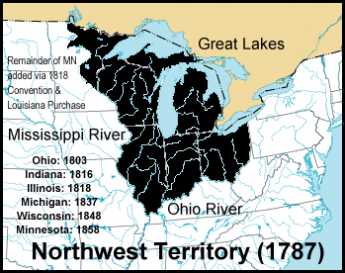 The British took over the Northwest Territory from France at the 1763 Treaty of Paris. The United States then acquired it at the second Treaty of Paris, ending the Revolutionary War, in 1783. The Northwest Ordinance of 1787 established rules for governing the Territory, as just about the last act under the Articles of Confederation.
The British took over the Northwest Territory from France at the 1763 Treaty of Paris. The United States then acquired it at the second Treaty of Paris, ending the Revolutionary War, in 1783. The Northwest Ordinance of 1787 established rules for governing the Territory, as just about the last act under the Articles of Confederation.
Grand Union
 Thirteen stars and stripes became the National Flag in 1777, but a rather similar flag was the National flag from 1775-1777. It was also designed by a Philadelphia milliner, Margaret Manny.
Thirteen stars and stripes became the National Flag in 1777, but a rather similar flag was the National flag from 1775-1777. It was also designed by a Philadelphia milliner, Margaret Manny.
Writing and Ratifying the Articles of Confederation
 The Articles of Confederation defined terms of alliance in a largely unexpected war, and were only fully agreed to as the Revolution drew to a close. Peacetime amendment was hampered by wartime oaths of "perpetual" Union, combined unrealistically with a crippling ability of individual states to block reductions of their own power. Nevertheless, many features of the Constitution were anticipated in the Articles.
The Articles of Confederation defined terms of alliance in a largely unexpected war, and were only fully agreed to as the Revolution drew to a close. Peacetime amendment was hampered by wartime oaths of "perpetual" Union, combined unrealistically with a crippling ability of individual states to block reductions of their own power. Nevertheless, many features of the Constitution were anticipated in the Articles.
The Articles of Confederation and Perpetual Union (Complete Text)
 The full text of the Articles of Confederation.
The full text of the Articles of Confederation.
Perpetual?
 If you get careless with your words, you may have to renounce them. The Articles of Confederation were stated to be perpetual, so maybe the Constitution is impertinent. Maybe someone would say it was treason.
If you get careless with your words, you may have to renounce them. The Articles of Confederation were stated to be perpetual, so maybe the Constitution is impertinent. Maybe someone would say it was treason.
American Articles of Confederation, Valuable or Hindrance?
 The American Articles of Confederation were devised and then completed in Philadelphia. Correcting their biggest flaws made it easier to accept a sparse Constitution which is hard to amend. But it gave the British a legal way to hang them as rebels.
The American Articles of Confederation were devised and then completed in Philadelphia. Correcting their biggest flaws made it easier to accept a sparse Constitution which is hard to amend. But it gave the British a legal way to hang them as rebels.
Signers of the Articles of Confederation
The signers of America's first constitution, the Articles of Confederation, are less well-known than those of the Constitution or the Declaration of Independence, but they are no less important to our history. Some basic demographic information about these men is presented below.
ARCHITECTURE OF GOVERNMENT: (1) ARTICLES OF STRUCTURE
There wasn't much to the Articles of Confederation. The document was more an oath of perpetual allegiance among thirteen tribes who had been attacked by a common enemy. Someone had to have the stature to proclaim it was silly to declare such an arrangement to be perpetual.
Declaration of Independence
 The Declaration of Independence is the document in which the Thirteen Colonies declared themselves independent of the King
The Declaration of Independence is the document in which the Thirteen Colonies declared themselves independent of the King
zzzbill of Rights
New blog 2012-04-11 18:30:59 description
Human Rights
 Human Rights is a popular term, but not a very clear one.
Human Rights is a popular term, but not a very clear one.
Those Troublesome Lees of Virginia
It's difficult for Pennsylvanians to understand why the Lee family of Virginia made so much trouble for our heroes, Robert Morris, Benjamin Franklin, Gouverneur Morris in particular. Perhaps it was a cultural clash.
Articles of Confederation (Complete Text)
The final text of the Articles of Confederation.
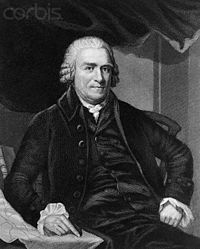
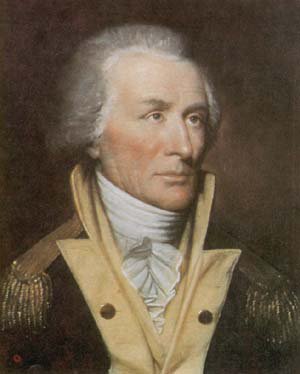
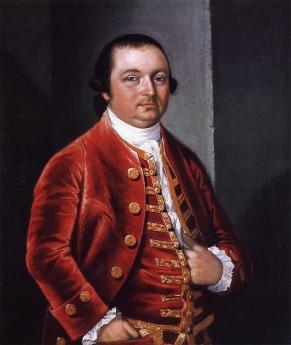
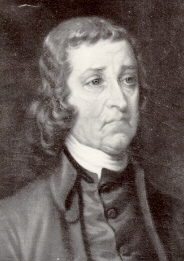
.jpg)
